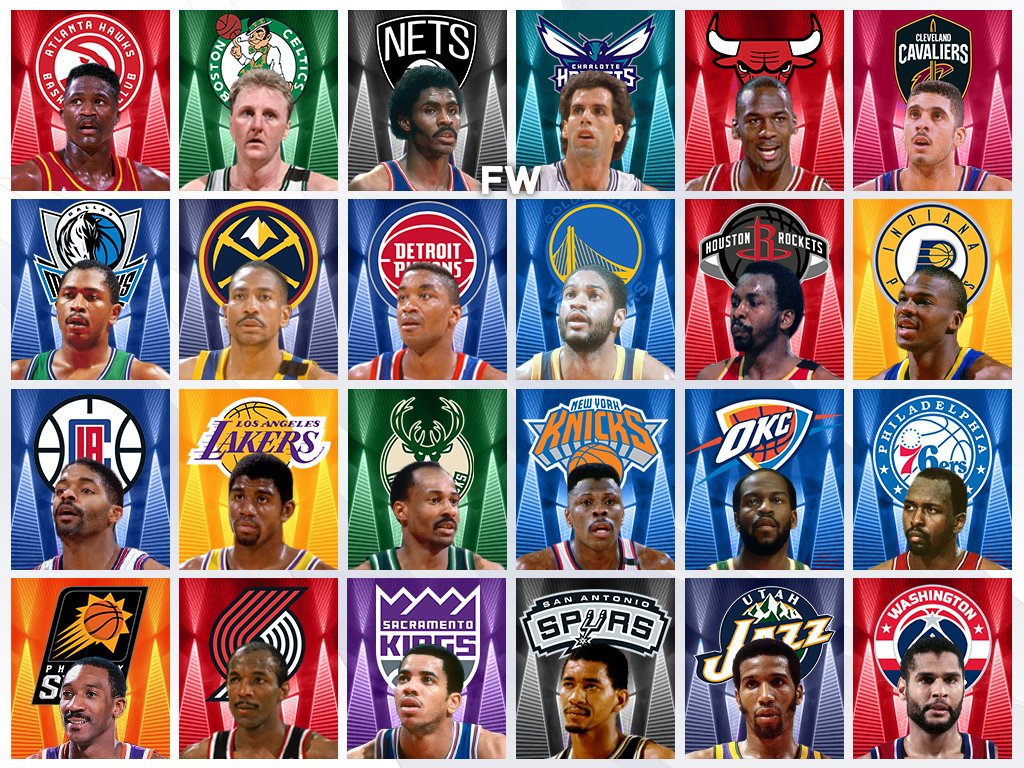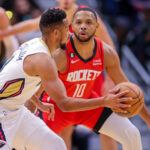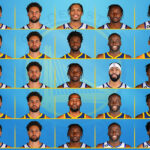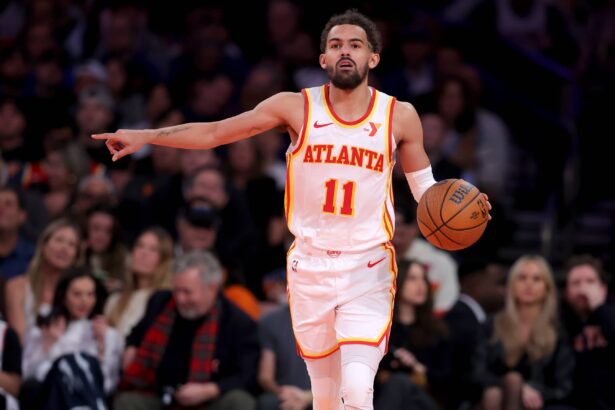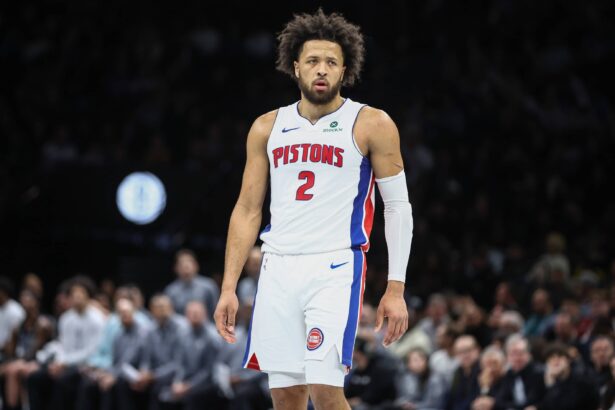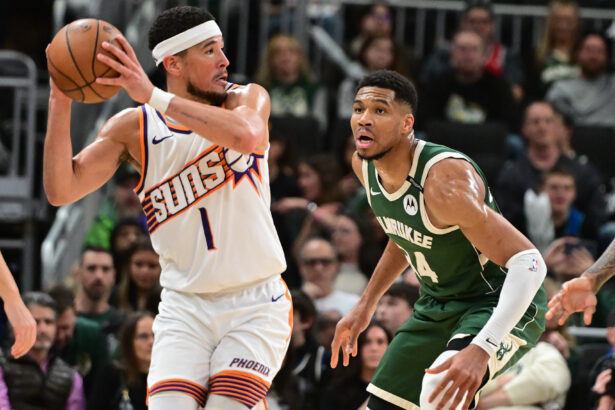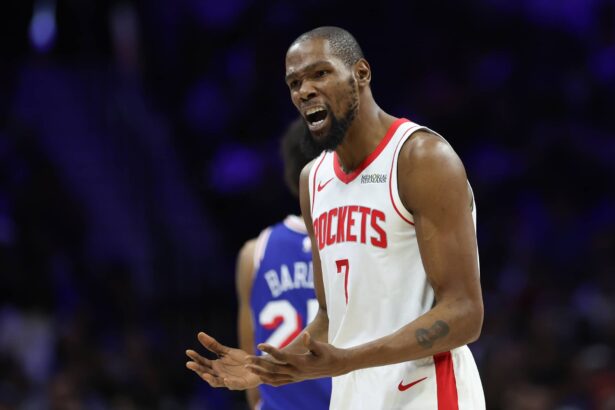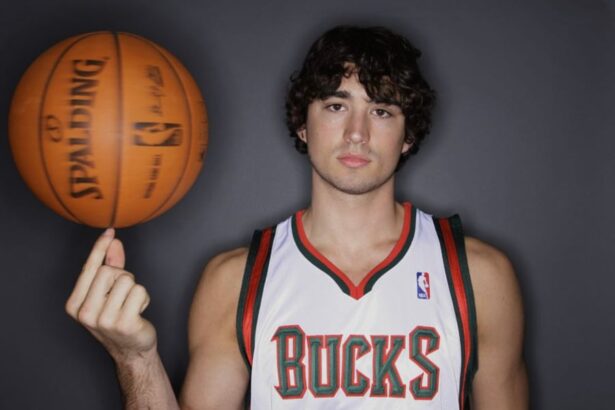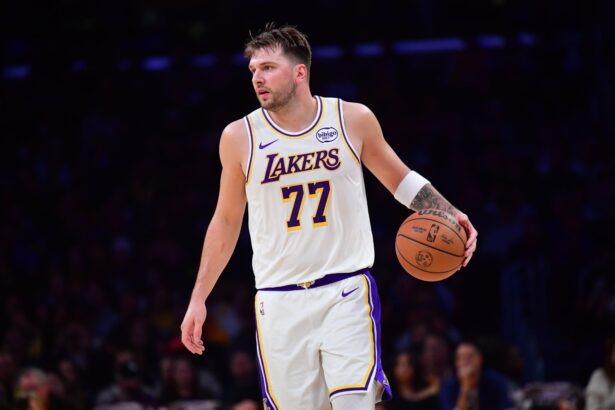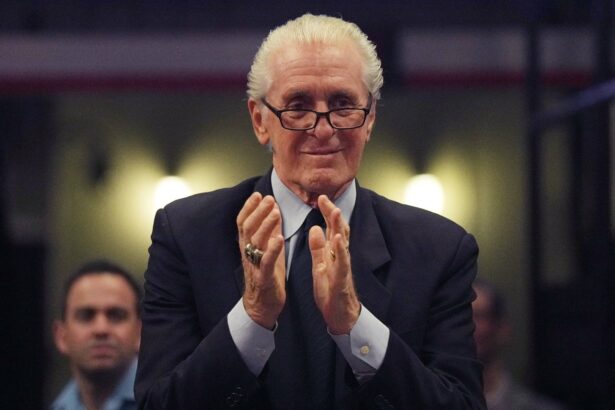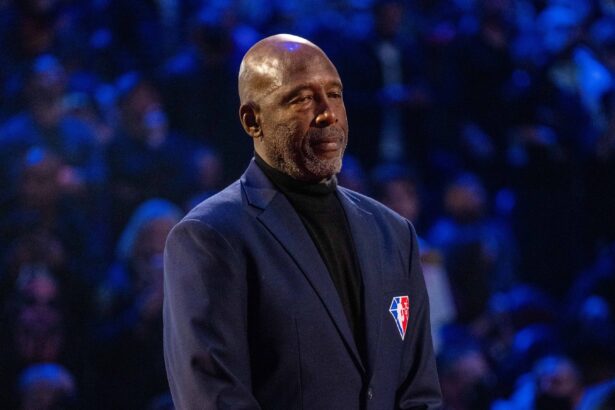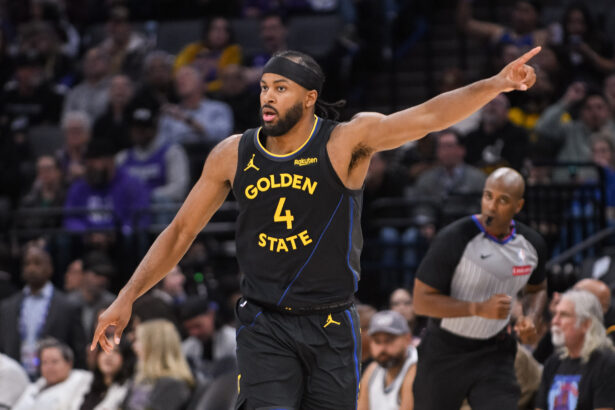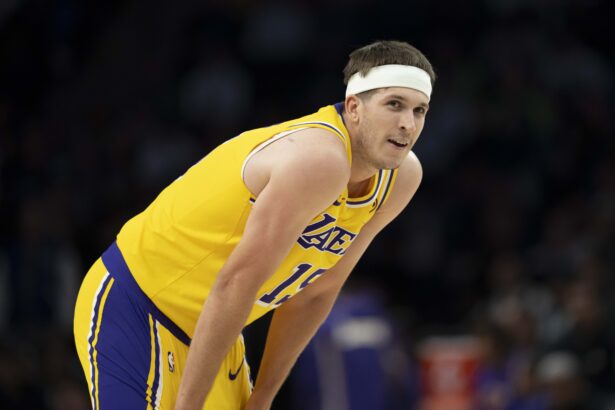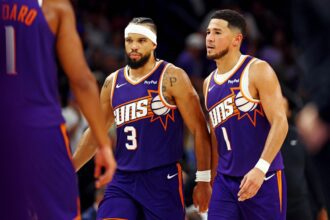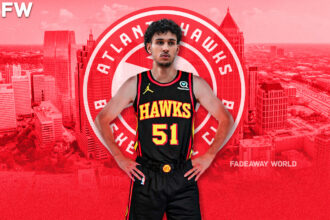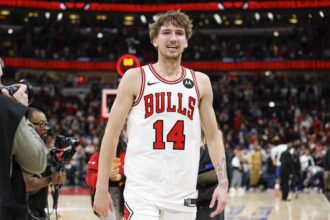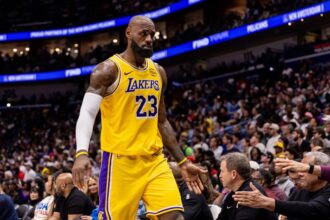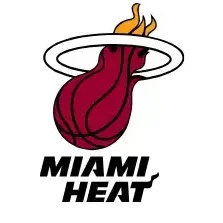The 1980s have an argument to be the best era of basketball in NBA history. The game was exceptionally fast and more fluid at a time when many of the greatest players in NBA history first stepped on the court. The 80s was a refreshing and resurgent era for the NBA after the 70s saw them end the decade in a funk and in an eerie situation popularity-wise. Then, at the turn of the decade, a rivalry made its way from the college ranks between Magic Johnson and Larry Bird that initiated a popularity the NBA had never seen before. This opened the floodgates for the rise of some of the NBA’s greatest superstars, including the one that many proclaim is the greatest to ever do it.
- Atlanta Hawks – Dominique Wilkins
- Boston Celtics – Larry Bird
- Brooklyn Nets – Buck Williams
- Charlotte Hornets – Kelly Tripucka
- Chicago Bulls – Michael Jordan
- Cleveland Cavaliers – Brad Daugherty
- Dallas Mavericks – Mark Aguirre
- Denver Nuggets – Alex English
- Detroit Pistons – Isiah Thomas
- Golden State Warriors – Joe Barry Carroll
- Houston Rockets – Moses Malone
- Indiana Pacers – Chuck Person
- Los Angeles Clippers – Norm Nixon
- Los Angeles Lakers – Magic Johnson
- Milwaukee Bucks – Sidney Moncrief
- New York Knicks – Patrick Ewing
- Oklahoma City Thunder – Gus Williams
- Philadelphia 76ers – Moses Malone
- Phoenix Suns – Walter Davis
- Portland Trail Blazers – Clyde Drexler
- Sacramento Kings – Otis Birdsong
- San Antonio Spurs – George Gervin
- Utah Jazz – Adrian Dantley
- Washington Wizards – Jeff Malone
- Next
- Every NBA Team’s Best Player In The 1990s
- Every NBA Team’s Best Player In The 2000s
- Every NBA Team’s Best Player In The 2010s
- Kareem Abdul-Jabbar’s MVP Points Per Season: The Legendary Big Man Won 6 MVP Awards Which Is The Most Of All-Time
- All-Time Bulls Team vs. All-Time Pistons Team: Michael Jordan Gets Full Revenge Against The Bad Boys
That’s right, the 80s is the decade we were introduced to the great Michael Jordan, who became an icon on both the national and global stage. As the NBA’s fan reach extended, more and more NBA superstars emerged and paved the way for the modern-day game we have today. These are the superstars from every NBA team during the decade that we will be honoring today. The NBA was also at a turning point structurally as well. In 1980, as the decade began, there were 22 NBA teams around the league. That number grew to 24 by the time the decade was wrapping up in 1989. This will be one of the best lists we have made yet as we revisit and dive deeper into one of the greatest time periods in NBA history.
This is every NBA team’s greatest player of the 1980s.
Atlanta Hawks – Dominique Wilkins
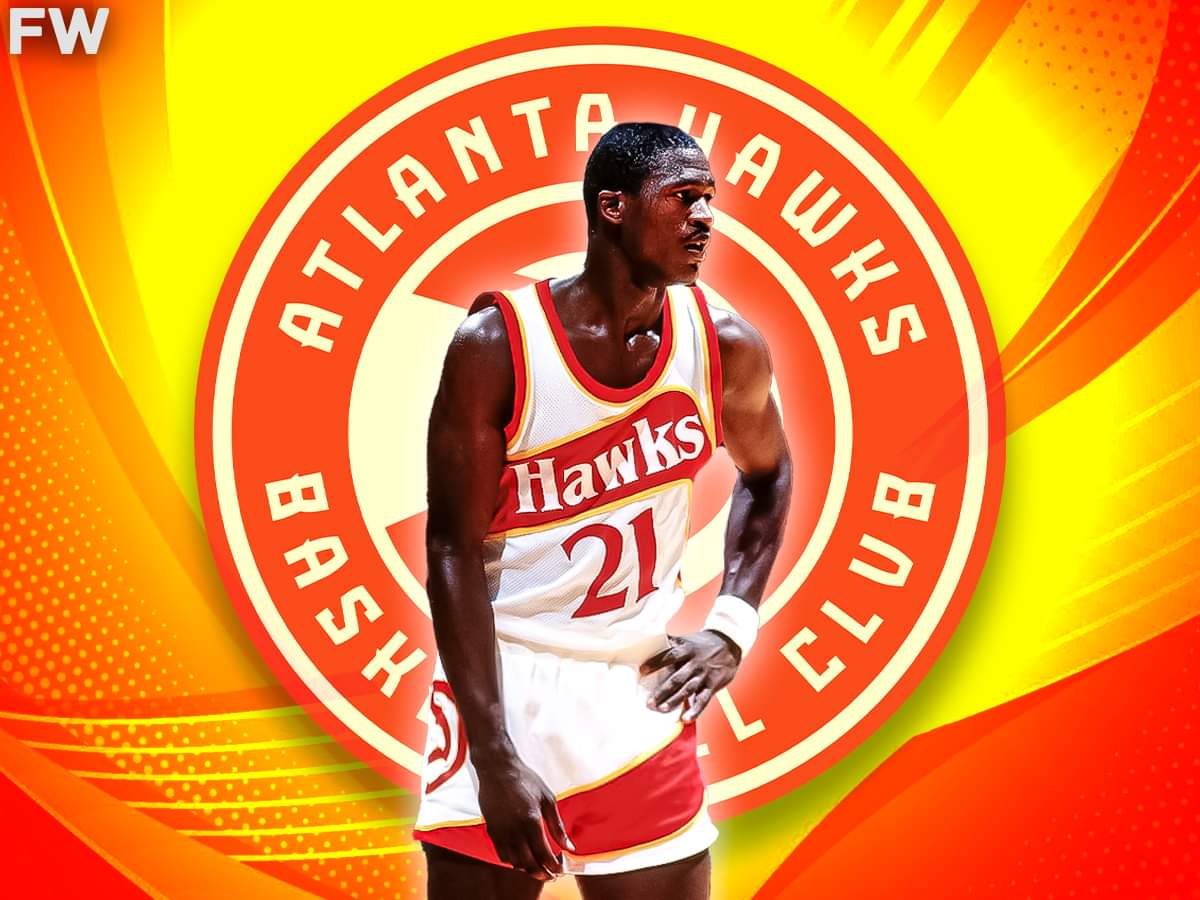
1979-80 to 1988-89 Achievements (with Hawks): 4x All-Star, 4x All-NBA Team Selection
Dominique Wilkins is one of the superstars in the 1980s that brought a unique and popular style to the league. Wilkins was a high-flying scoring machine that was certain to deliver rim-rocking highlights on a nightly basis. Wilkins was consistently locked in on the offensive side of the basketball and was a nightmare for defenders off the dribble and on fast breaks. With his speed, leaping ability, and natural talent, Wilkins became one of the most prolific scorers of the 80s with the Atlanta Hawks.
Wilkins showed off his scoring ability from his first season in the NBA in 1983. He averaged 17.5 PPG as a rookie and was named to the All-Rookie First Team. Just 3 seasons later, Wilkins was named an All-Star for the first time in his career and won the NBA’s scoring title with 30.3 PPG. For the entire decade of the 80s that Wilkins was in the NBA, he averaged 26.0 PPG on 46.7% shooting. Wilkins may have never been able to win a championship with the Hawks, but he did rival the decade’s greatest stars, going toe-to-toe in historic scoring battles.
Boston Celtics – Larry Bird
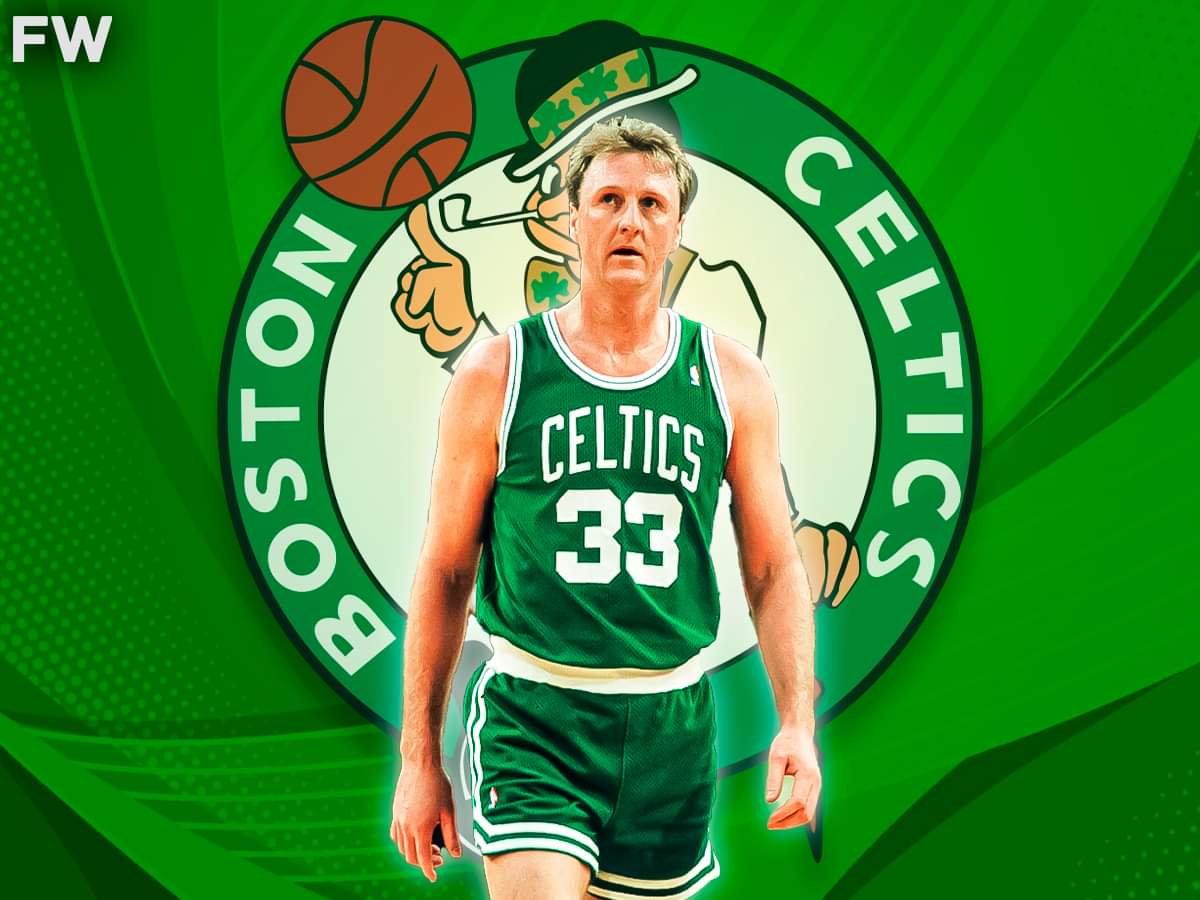
1979-80 to 1988-89 Achievements (with Celtics): 3x NBA Champion, 2x Finals MVP, 3x MVP, 1x Rookie Of The Year, 9x All-Star, 1x All-Star Game MVP, 9x All-NBA Team Selection, 3x All-Defensive Team Selection
There is no other choice for the greatest Celtics player of the 80s than the man who was one-half of the decade’s best rivalry, Larry Bird. The Celtics’ small forward was someone who could do everything at an elite level on the basketball court. He was a pure and efficient shooter from any spot you needed him to be. He was a savvy passer and playmaker who made his teammates better and led the Celtics to 3 NBA championships during the decade. He could rebound, defend, and be a leader as good as anyone who has ever played the game, and his production and achievements show it.
Bird made his NBA debut in 1980 and by 1981 was an NBA champion. He would win 3 straight MVPs from 1984 through 1986 and NBA championships in both 1984 and 1986 as well. During his MVP seasons, Bird averaged 26.2 PPG, 10.1 RPG, 6.7 APG, and 1.8 SPG. Larry Bird would be named the Finals MVP for 2 of the 3 Celtics titles in the 80s as well. In 1984, Bird and the Celtics won the title, with Bird averaging 27.4 PPG, 14.0 RPG, and 3.6 APG as they took down the Lakers in 7 games. In 1986, Bird was named Finals MVP again when the Celtics beat the Rockets, led by Bird’s 24.0 PPG, 9.7 RPG, and 9.5 APG.
Brooklyn Nets – Buck Williams
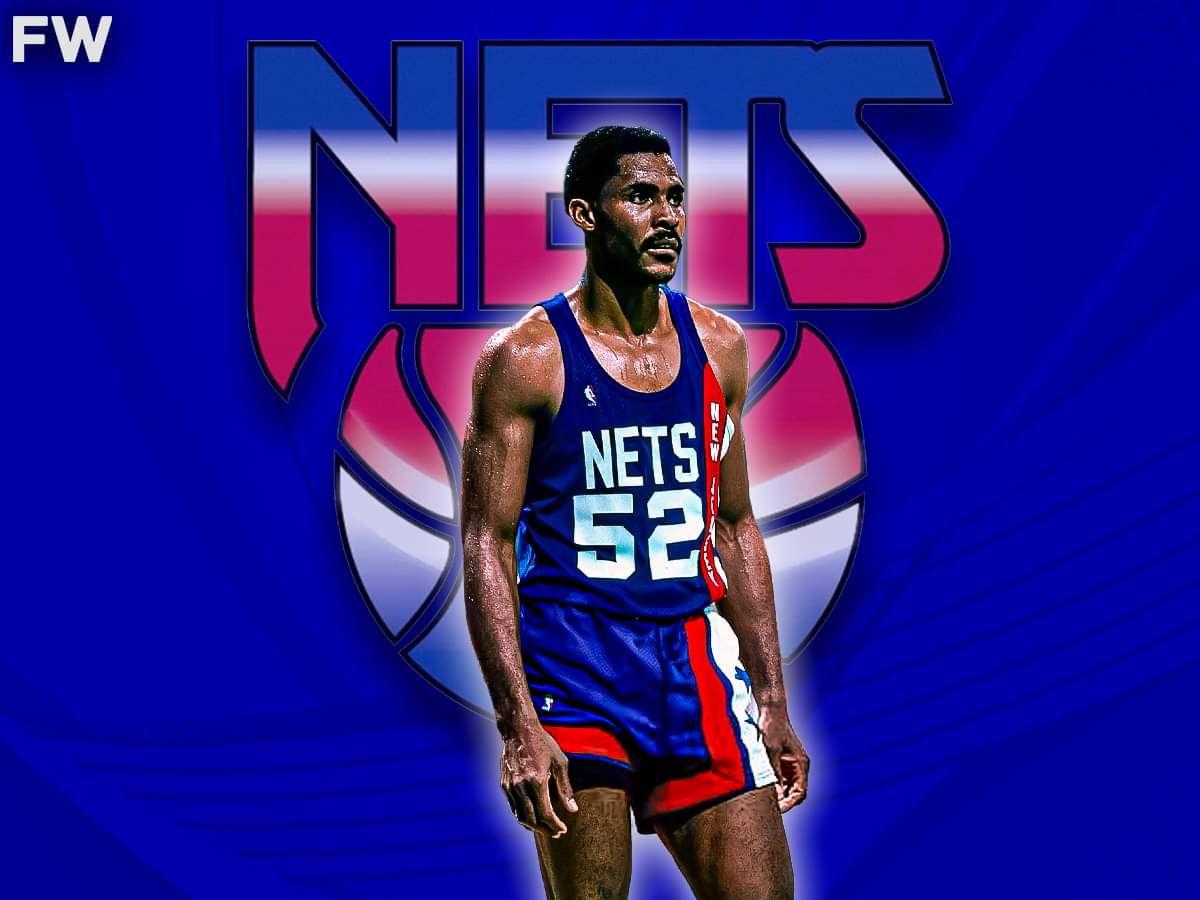
1979-80 to 1988-89 Achievements (with Nets): 1x Rookie Of The Year, 3x All-Star, 1x All-NBA Team Selection, 4x All-Defensive Team Selection
With the 3rd overall pick in the 1981 NBA Draft, the Nets selected Buck Williams out of the University of Maryland. Williams was a 6’8’’ power forward who became the Nets’ first real superstar during the 1980s and retired as No. 1 in nearly every major statistic in franchise history. Williams was a world-class defender, a solid offensive player, and a walking double-double. He was an efficient offensive threat who, in the entire decade for New Jersey, shot the ball at 55.0%.
Williams hit the ground running with the Nets, earning Rookie of the Year honors in 1982, averaging 15.5 PPG and 12.3 RPG while also being named an All-Star, He would be named an All-Star the following season when he averaged 17.0 PPG, 12.5 RPG, 1.1 SPG, and 1.3 BPG. For 7 straight seasons from 1982 through 1988, Williams averaged 16.4 PPG and 11.9 RPG and averaged a double-double every season aside from his last in a New Jersey uniform.
Charlotte Hornets – Kelly Tripucka
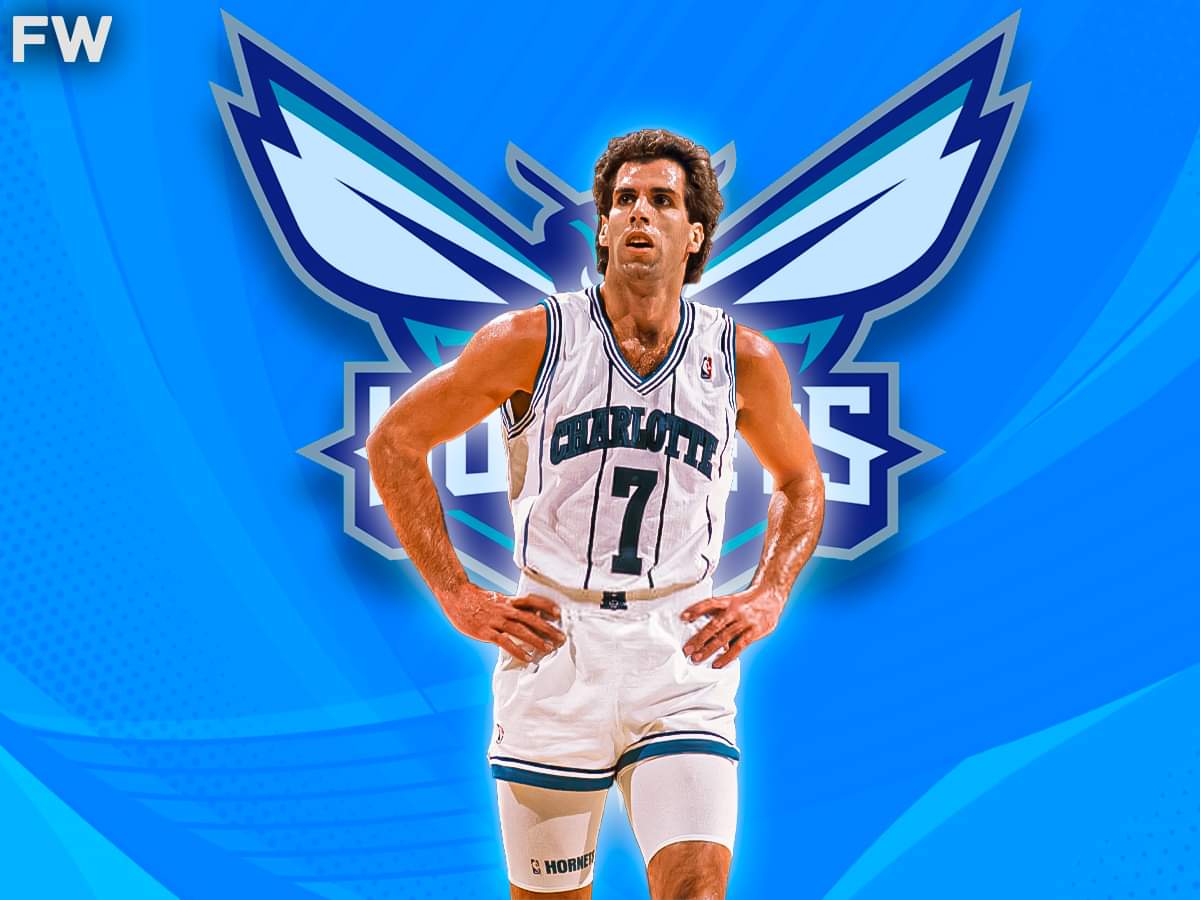
1979-80 to 1988-89 Achievements (with Hornets): N/A
Selecting a pick for the Charlotte Hornets’ greatest player from the 80s is about as hard as a pick that we had on today’s list. The Hornets debuted for the first time as a team during the 1988-89 season and technically only had one season of existence during the 1980s. The Hornets would finish 20-62 in their inaugural season, with Kelly Tripucka leading the way as their leading scorer and best player.
The Hornets did not field an All-Star during this time, but Tripucka was as close as it gets. Tripucka was headed into his 8th season in the NBA and had been a 2-time ALl-Star before with the Detroit Pistons. This season, Tripucka would average 22.6 PPG, 3.8 RPG, and 3.2 APG on 46.7% shooting from the field. The only other players who could have been honorable mentions for the Hornets during their one season in the 80s are Rex Chapman and Muggsy Bogues.
Chicago Bulls – Michael Jordan
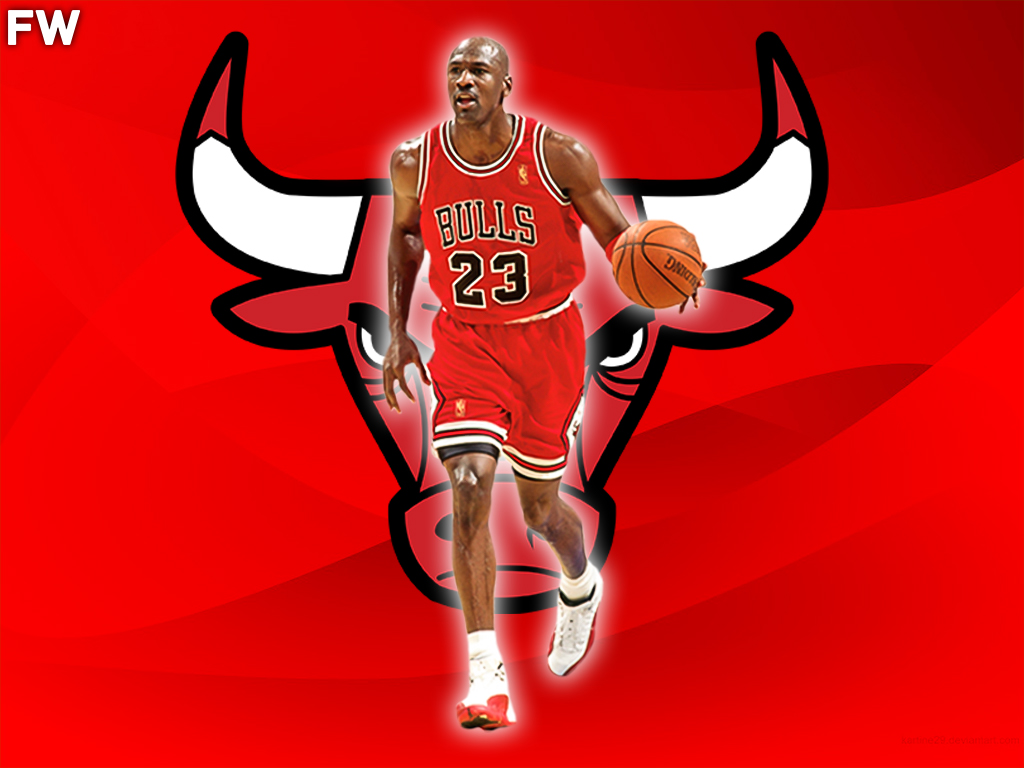
1979-80 to 1988-89 Achievements (with Bulls): 1x MVP, 1x Defensive Player Of The Year, 1x Rookie Of The Year, 5x All-Star, 4x All-NBA Team Selection, 2x All-Defensive Team Selection
The 1980s is when the legend of Michael Jordan was born in Chicago. Taken with the 3rd overall pick in the 1984 NBA Draft, Jordan showed the world right away that he was destined for a career of greatness that would eventually evolve into the greatest career in NBA history. Jordan was a scoring machine for the Bulls in the 90s, as an acrobatic finisher, a shooter from the mid-range, and unstoppable in transition. He also happened to be one of the best perimeter defenders in the NBA, winning the Defensive Player of the Year award in 1988 with 3.2 SPG.
The 1987-88 season was one for the record books for Michael Jordan and the best of his career up to that point. Jordan 35.0 PPG to take home his 2nd straight scoring title on 53.5% shooting. Jordan also averaged 5.5 RPG, 5.9 APG, 3.2 SPG, and 1.6 BPG. He took home the MVP award as well as the Defensive Player of the Year Award and the second straight All-NBA First Team selection. Jordan would not deliver the Bulls a championship in the 80s, but his battles with Magic, Bird, and Isiah Thomas gave us some of the behest battles in NBA history.
Cleveland Cavaliers – Brad Daugherty
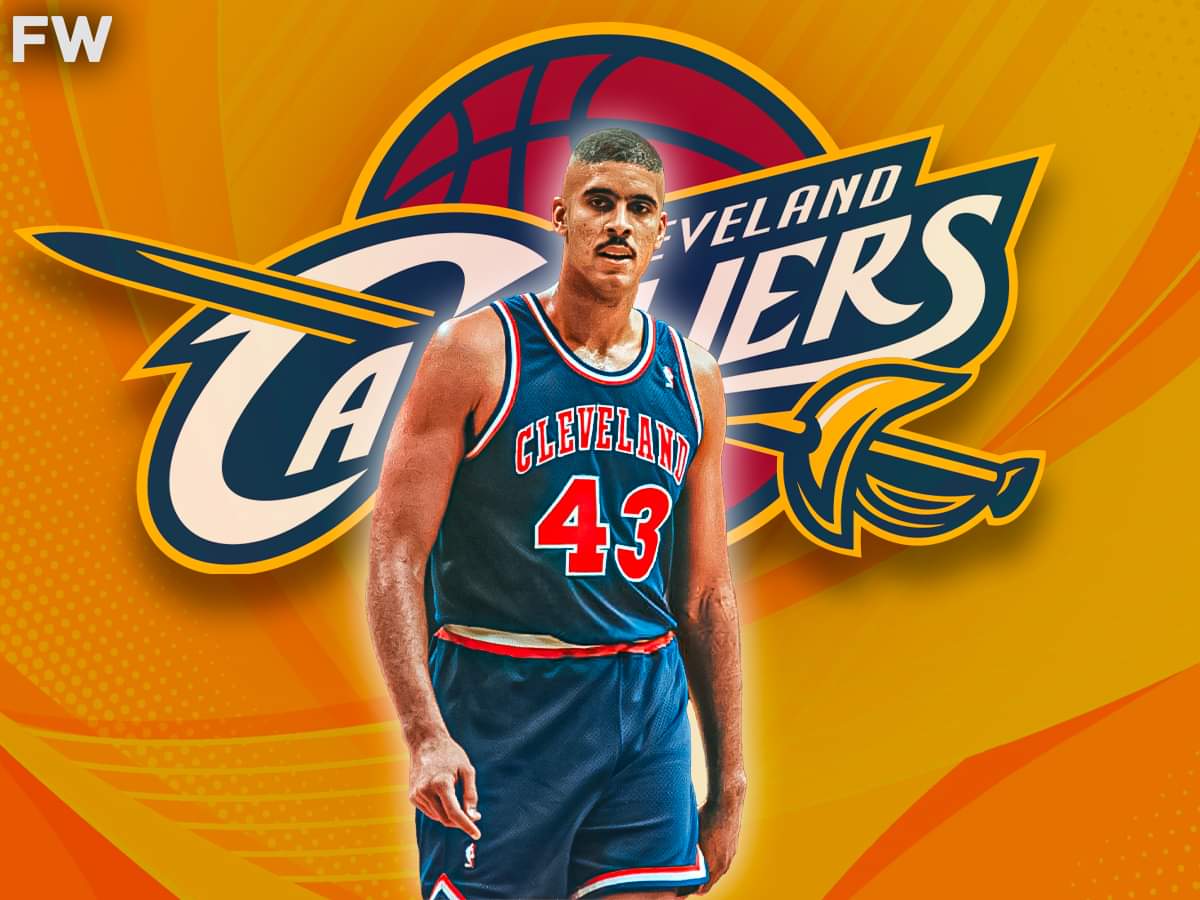
1979-80 to 1988-89 Achievements (with Cavaliers): 2x All-Star
Brad Daugherty was one of the more promising big men of his era whose back gave out on him at a young age. Daugherty was a dominant presence in the paint early on with the Cavaliers after being drafted with the first overall pick in the 1986 NBA Draft. As a rookie, he showed his ability as a passer from both the low and high posts and his scoring ability in the paint. Daugherty was not only a willing passer but a smart and accurate passer as well, with an uncanny ability to find his teammates cutting to the rim.
Daugherty was named to the All-Rookie First Team after finishing the year with 15.7 PPG and 8.1 RPG. He would earn his first All-Star selection the following season when he averaged 18.7 PPG and 8.4 RPG on 51.0% shooting. In 1988-89, Daugherty was named an All-Star once again with 18.9 PPG and 9.2 RPG on 53.8% shooting. Daugherty would be a driving force in the Cavaliers’ push towards contention in the late 80s and early 90s but would be forced to retire by 1994 with back issues. When Daugherty retired, he was just 29 years old and would never play in the NBA again.
Dallas Mavericks – Mark Aguirre
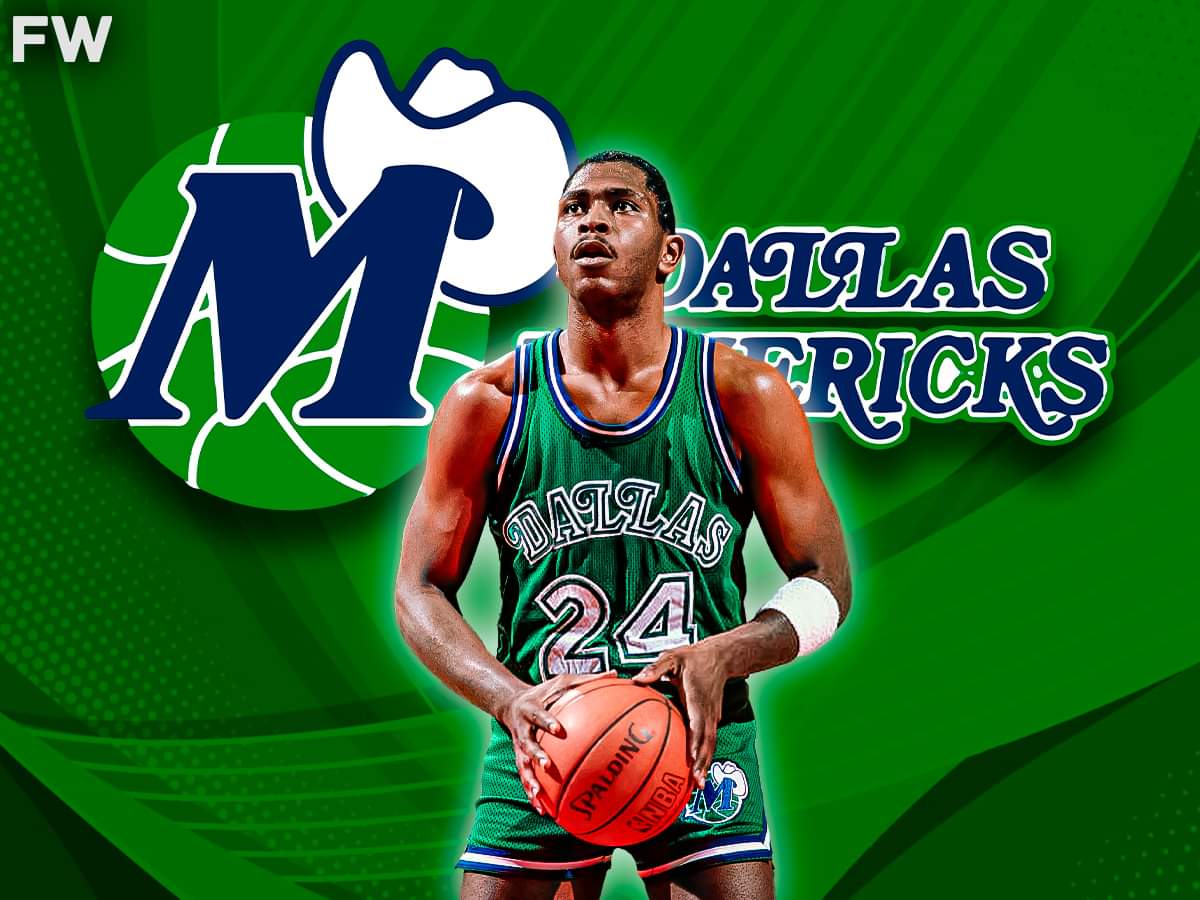
1979-80 to 1988-89 Achievements (with Mavericks): 3x All-Star
Mark Aguirre was drafted No. 1 overall by the Mavericks in the 1981 NBA Draft. Aguirre was as complete as they come on offense. He was a great scorer, passer, and could control smaller opponents in the post. The Mavericks were a fairly new franchise when they decided to draft Aguirre, and he helped to put them on the map in the 80s. After a rookie season that saw him miss 31 games but average 18.7 PPG, Aguirre was handed the keys to the team as their best player and leader.
After his rookie season, Aguirre would never average below 22.0 PPG in a Mavs uniform ever again. He was their clear-cut best scorer, passer, and among their best rebounders. Aguirre earned his first All-Star selection in the 1983-84 season as he finished 2nd in the NBA in scoring with 29.5 PPG. He would average over 25.0 PPG 4 more times for the Mavs during the decade and helped them reach a Western Conference Finals in 1988. Aguirre would go on to win an NBA championship in Detroit in the 90s but cemented his name in Mavs history in the 80s.
Denver Nuggets – Alex English
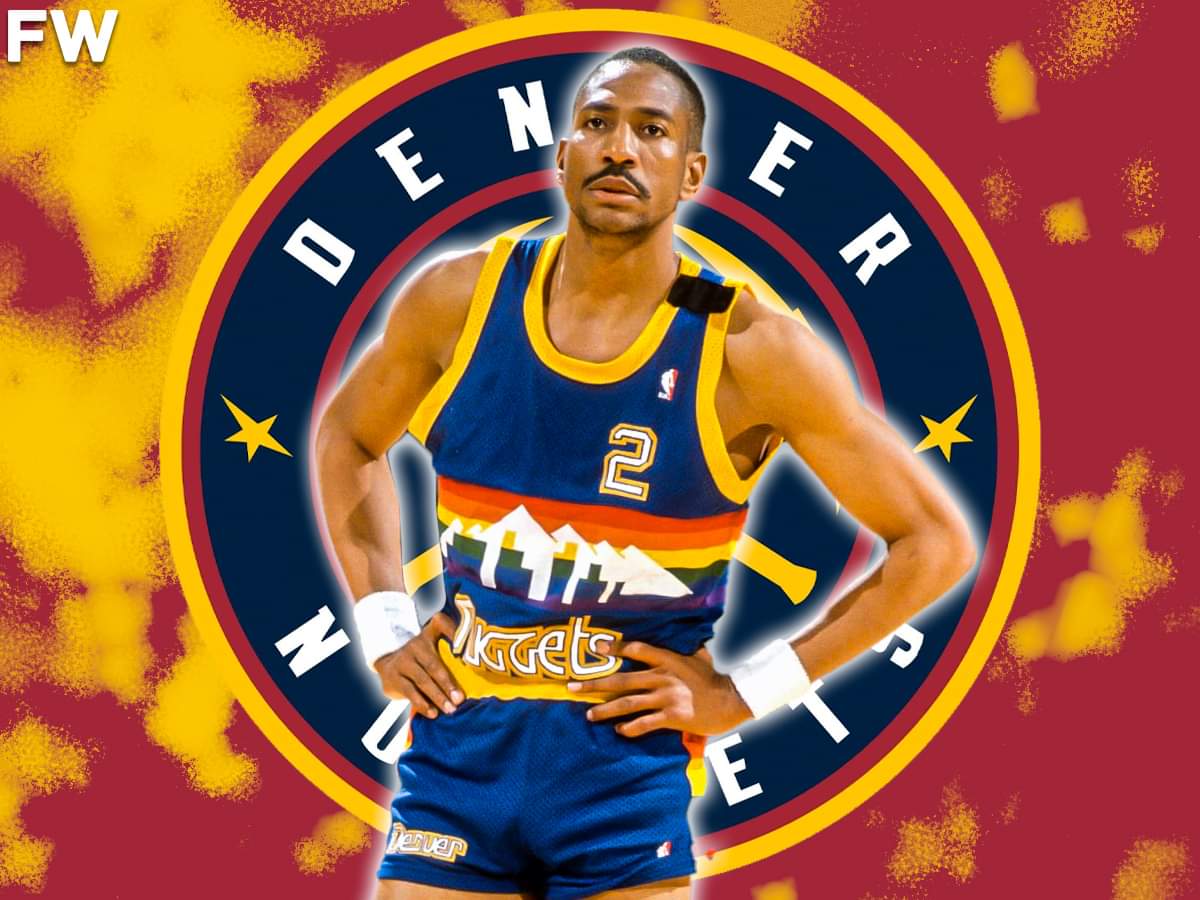
1979-80 to 1988-89 Achievements (with Nuggets): 8x All-Star, 3x All-NBA Team Selection
Alex English could very well be considered the most underrated player in NBA history. English is never in the greatest small forwards of all-time conversation, even though he probably should be. English was a prolific scorer in the 80s with his run-and-gun style that was tough for opponents to keep up with. He was one of the better fast break operators in the league at the time and often finished the play himself. He could split double-teams fairly easily, and when defenders would overplay him, he went right by for an easy basket or handoff to a teammate.
I am sure you know by now that when it comes to total points in the 80s, Alex English is No. 1 on the list. He would record 8 straight 2,000-point seasons in the decade as well, which resulted in 8 straight All-Star selections. As a career 50.7% shooter for his career, English could knock down his jumper from almost anywhere on the court and from the free-throw line. He led the Nuggets to the playoffs 9 straight seasons, including a Western Conference Finals run in 1985. English is still the Nuggets’ all-time leader in career points scored and one of their Top 3 players of all time.
Detroit Pistons – Isiah Thomas
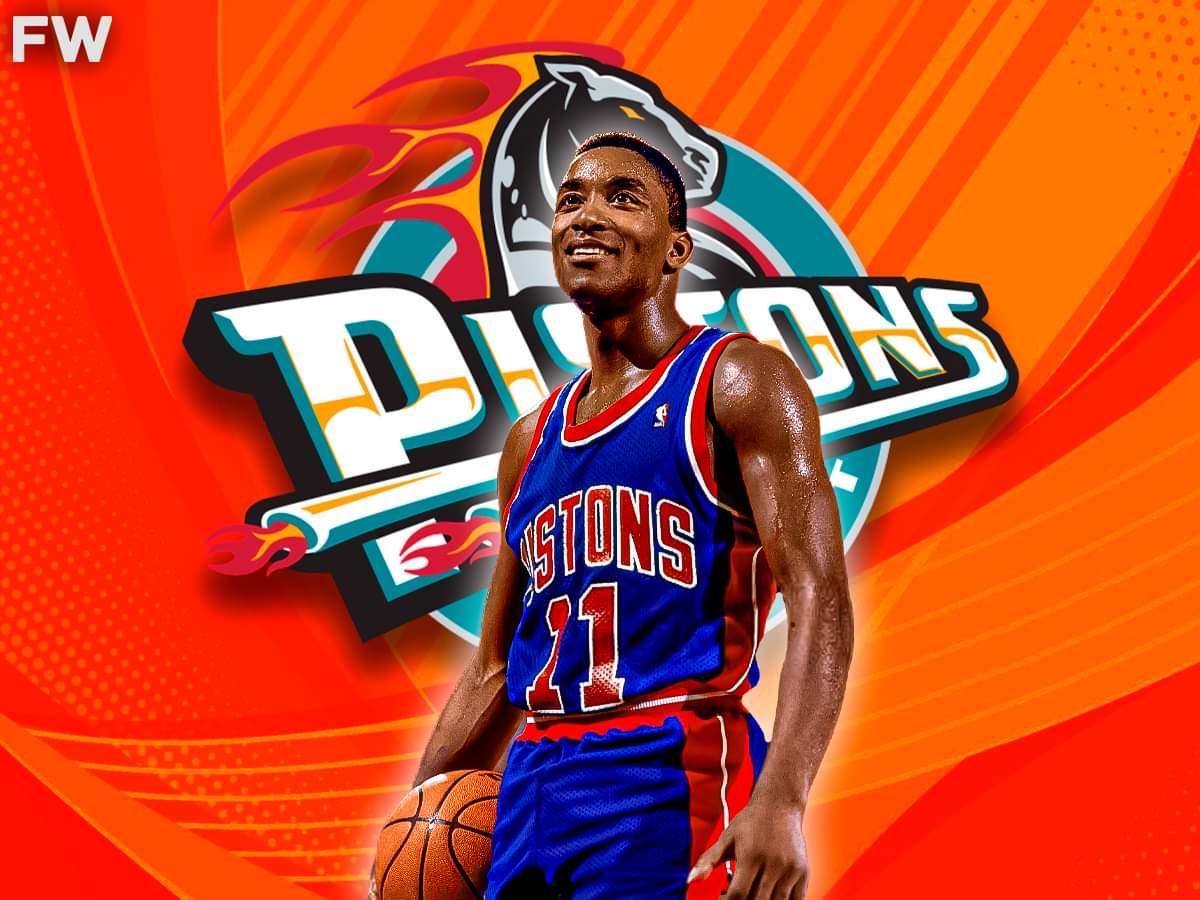
1979-80 to 1988-89 Achievements (with Pistons): 1x NBA Champion, 8x All-Star, 2x All-Star Game MVP, 5x All-NBA Team Selection
Isiah Thomas and the Detroit Pistons are as synonymous as any other legend is with their respective team. Thomas was the perfect fit in Detroit and helped them become one of the most iconic teams in NBA history. Drafted 2nd overall in 1981, Thomas immediately began to thrive in the NBA, becoming an All-star from his rookie season through the end of the decade every year. Thomas played so much bigger and tougher than his 6’1’’ frame allowed him to and became the team’s best scorer, passer, and perimeter defender.
There was simply nothing on the court that Thomas couldn’t do. The time period from 1983 through 1987 may have been his best stretch of the decade. During this time, Thomas averaged 21.4 PPG, 10.7 APG, and 2.3 SPG. Thomas would end the 80s with a remarkable run with the Pistons to the NBA championship. Joe Dumars would take home the Finals MVP award, but Thomas was just as, if not more, important to their first title in franchise history. Thomas deserves more respect as one of the better point guards in NBA history.
Golden State Warriors – Joe Barry Carroll
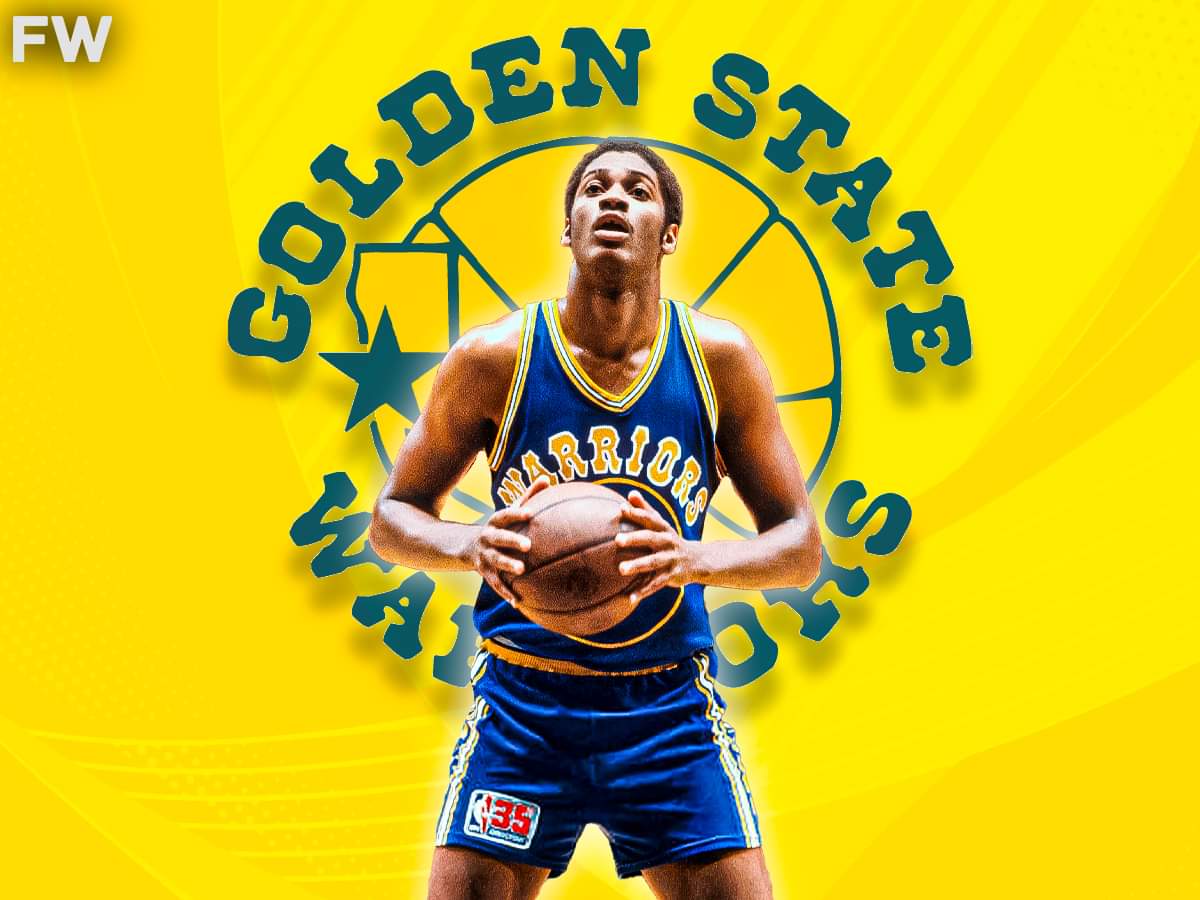
1979-80 to 1988-89 Achievements (with Warriors): 1x All-Star
In the 1980s, the Golden State Warriors had hit their all-time low as a franchise. They made the playoffs once in the decade and had a slew of miscues, draft mistakes, and missed opportunities. Joe Barry Carroll is widely believed to be one of the draft mistakes they made when they took him No. 1 overall in 1980. The truth is that although Parish and McHale went on to have great careers, Joe Barry Carroll wasn’t a bad pick, and his production shows it.
He was never an MVP or an All-NBA player, but to be fair, no one on the Warriors really was during the 1980s. Joe Barry Carroll began his career making an All-Rookie First Team when he averaged 18.9 PPG and 9.3 RPG his rookie season. From 1983 through 1987, Joe Barry Carroll averaged 21.8 PPG, 8.1 RPG, 1.3 SPG, and 1.8 BPG. He was a consistent 48.0% shooter or better and made an All-Star game in 1987. Joe Barry Carroll gets a ton of heat for seemingly not caring about the game and being a “draft bust” when those things couldn’t be further from the truth.
Houston Rockets – Moses Malone
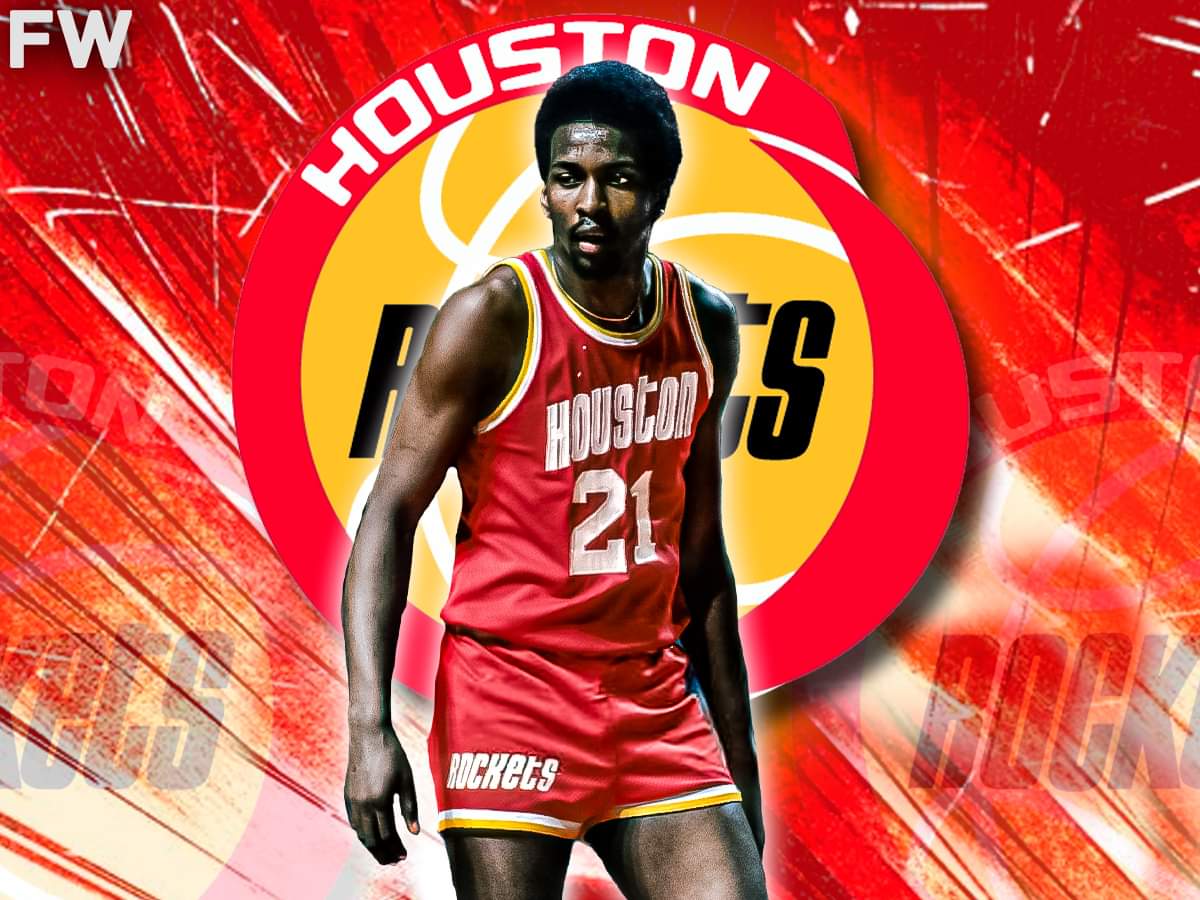
1979-80 to 1988-89 Achievements (with Rockets): 1x MVP, 3x All-Star, 3x All-NBA Team Selection
This was a close call between Moses Malone and Hakeem Olajuwon, with Malone pulling out in front due to his MVP award in 1982 and dominance of the NBA while in Houston. Malone was as tough as they come and absolutely unstoppable in the paint. When a shot went up, Malone needed to be accounted for, or else he was going to be the one that came down with the rebound. Malone was a dominant paint scorer as well, able to finish around the rim efficiently and use some soft touch when he was a little further out.
Malone only registered 3 full seasons with Houston during the 1980s. For those 3 seasons. Malone averaged 28.2 PPG, 14.6 RPG, and 1.6 BPG on 51.4% shooting. He won rebounding titles in 1981 and 1982 while averaging more than 27.0 PPG in each season. He was named the MVP in 1982 when he averaged 31.1 PPG and 14.7 RPG on 51.9% shooting. With a 40-42 record in 1981, Malone led the Rockets to an improbable NBA Finals run before losing to the Celtics in 6 games.
Indiana Pacers – Chuck Person
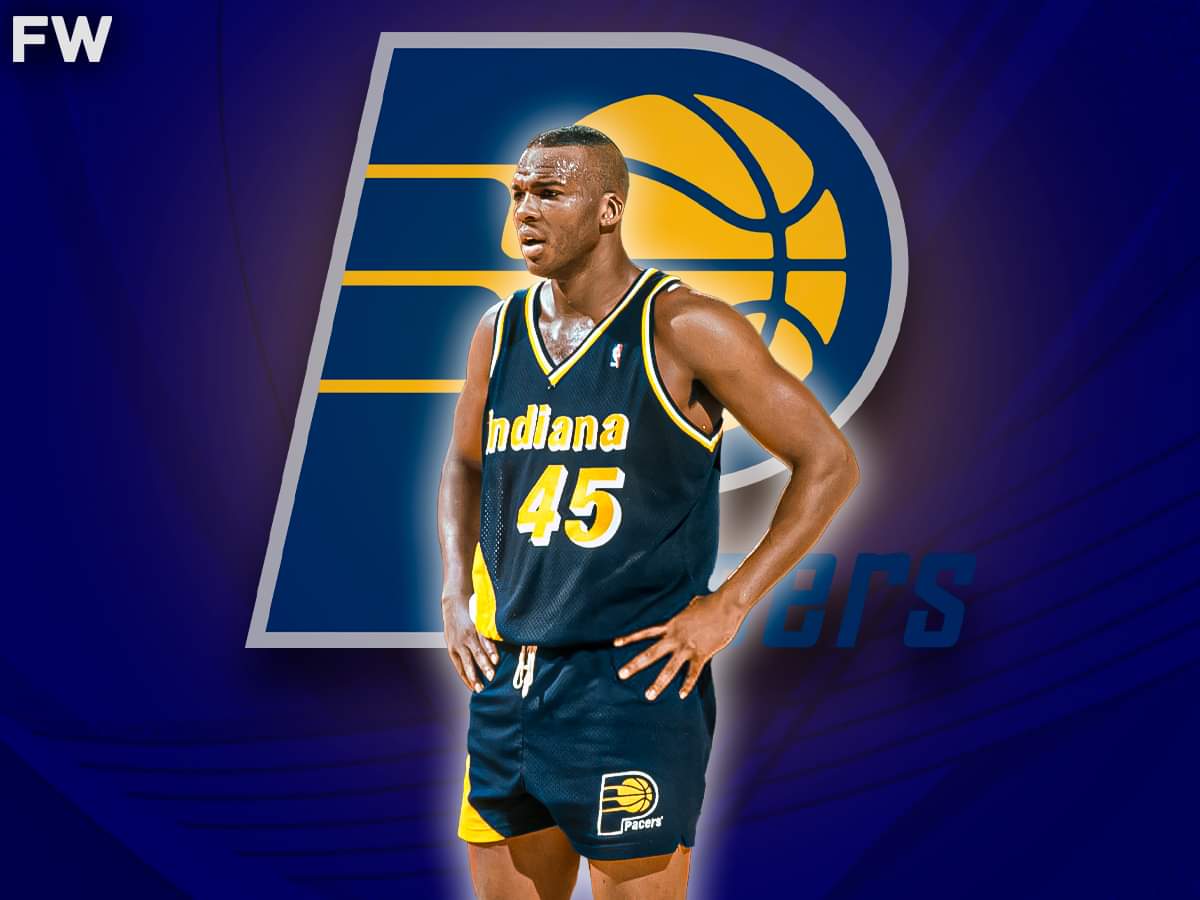
1979-80 to 1988-89 Achievements (with Pacers): 1x Rookie Of The Year
The Indiana Pacers have a long and storied history in both the ABA and NBA. In the mid-80s, Donnie Walsh was handed control of the Pacers as they were a cellar-dweller in the NBA after the merger. The rebuild began with a man by the name of Chuck Person out of Auburn. Person was a sharpshooter and one of the deadliest shooters in Pacers’ history. In his first season with the Pacers, Person’s presence helped them win 15 games more than the year before, the single-best improvement by any rookie in Pacers history.
Person would be honored with the Rookie of the Year award in 1987, the only player in Indiana Pacers history to win the award. He averaged 18.8 PPG and 8.3 RPG, leading the team in both categories and living up to his nickname “The Rifleman” with his superior outside shooting. In 1989, Person averaged a career-high 21.6 PPG and pulled down 6.5 RPG. The 80s were not kind to the Indiana Pacers for the most part, but Chuck Person’s arrival later in the decade definitely kickstarted their success as a franchise.
Los Angeles Clippers – Norm Nixon
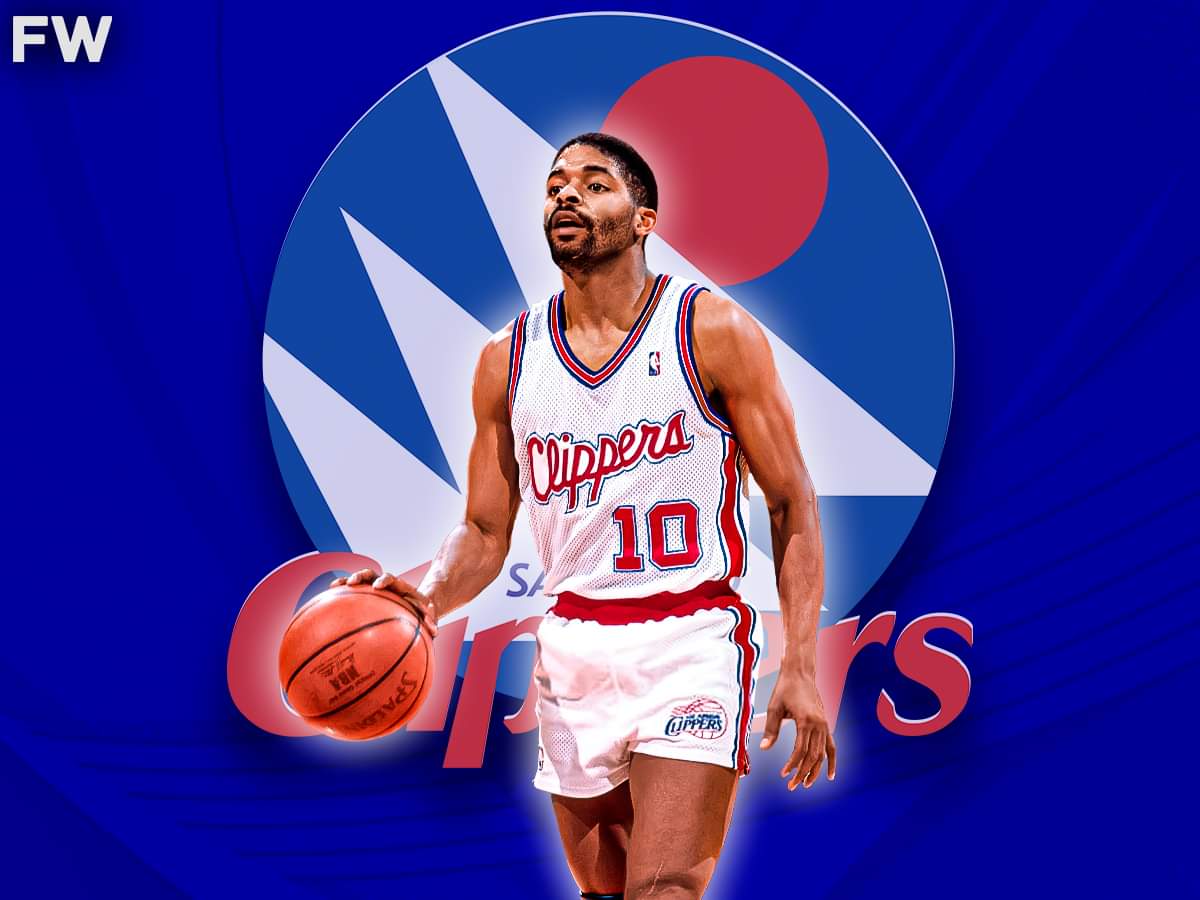
1979-80 to 1988-89 Achievements (with Clippers): 1x All-Star
The Los Angeles Clippers, during the 1980s, were one of the worst teams in professional sports. They often played in front of crowds of less than 5,000 people unless, of course, the Lakers or Celtics were in town. The team yielded just 3 All-Stars during the decade, and one of them was Norm Nixon in 1985. Nixon is best known for his years with the Showtime Lakers, but he was also the Clippers’ most complete player of the 1980s.
The Clippers were still in San Diego when Nixon made the move from the Lakers in 1983. In his first season with the team, Nixon averaged 17.0 PPG and 11.1 APG in 82 starts. The Clippers won just 30 games that season, but it was clear that Nixon was the team’s best player. The following season, Nixon earned an All-Star nod when he averaged 17.2 PPG, 8.8 APG, and 1.2 SPG. Nixon led the Clippers to 32 wins in 1985, the most wins they would accumulate in a season for the remainder of the decade.
Los Angeles Lakers – Magic Johnson
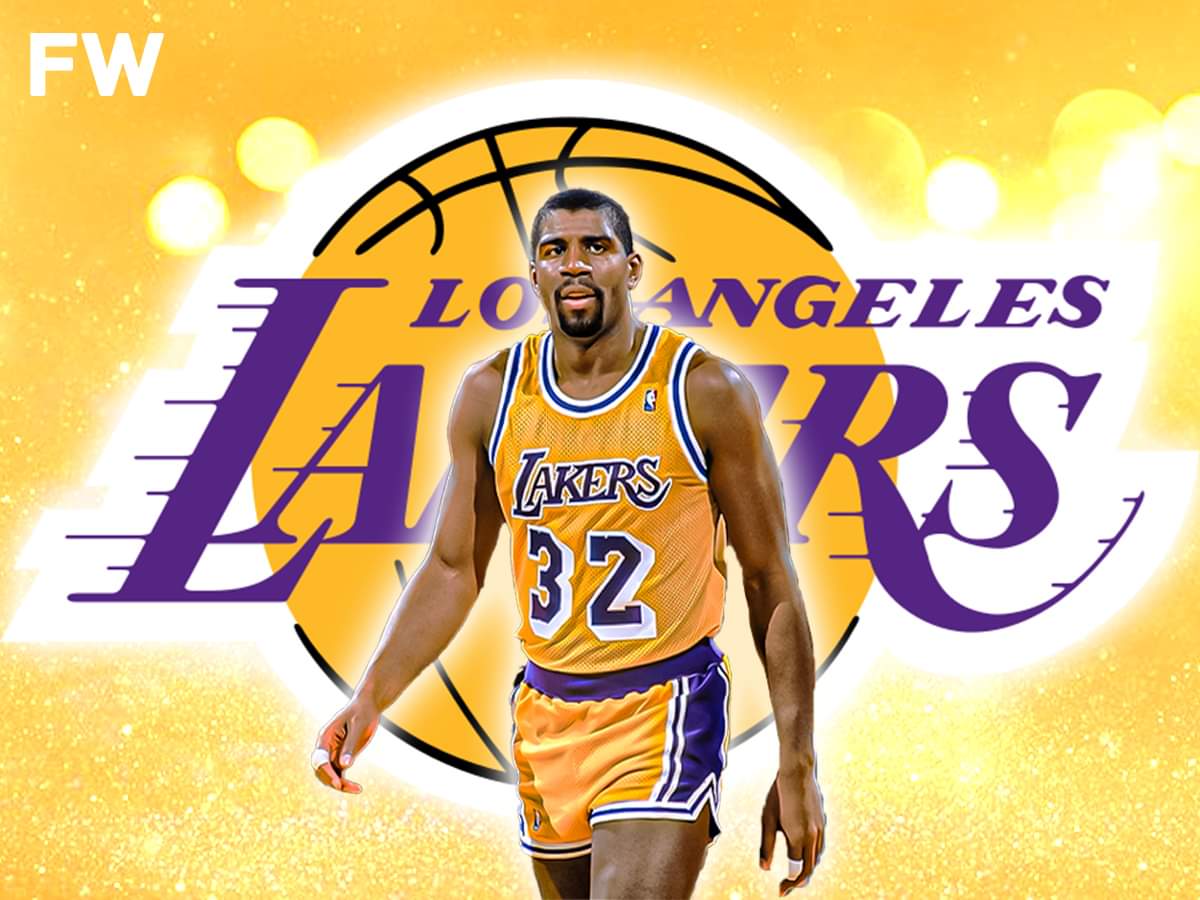
1979-80 to 1988-89 Achievements (with Lakers): 5x NBA Champion, 3x Finals MVP, 3x MVP, 10x All-Star, 8x All-NBA Team Selection
There is just no other choice for the Lakers’ best player during the 1980s than Magic Johnson. Sorry to Kareem and his fans, but Magic was the maestro for the Showtime Lakers of the 1980s. Magic came into Los Angeles and immediately steered things toward the better for the team, winning an NBA championship and Finals MVP in his rookie season. Magic was an elite defender, an elite scorer, and he was the greatest floor general we’ve seen. No person in NBA history has ever run a transition or fast-break offense better than Magic Johnson, and that is what made him the player we know him as today.
Magic ran the 80s along with his counterpart and longtime rival, Larry Bird. Magic got the best of Bird in the decade with 5 championships to Bird’s 3 and 3 Finals MVP awards to Bird’s 2. They each claimed 3 MVP awards, and each was out of the league in the early 90s due to circumstances outside of their control. Magic became the NBA’s all-time leader in APG and was a consistent 18.0 PPG threat. Without Magic, the Showtime Lakers never come to fruition as one of the greatest teams of all time.
Milwaukee Bucks – Sidney Moncrief
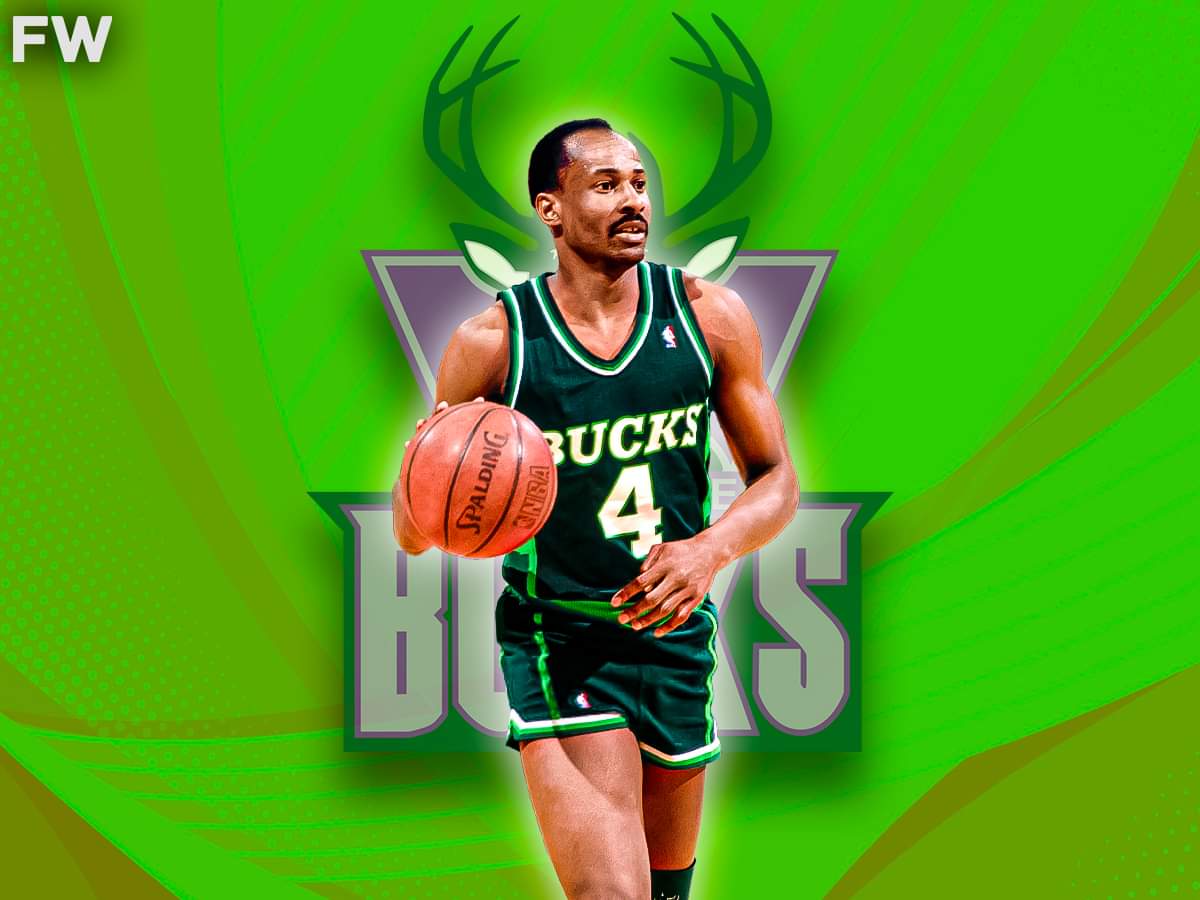
1979-80 to 1988-89 Achievements (with Bucks): 2x Defensive Player Of The Year, 5x All-Star, 5x All-NBA Team Selection, 5x All-Defensive Team Selection
One of the most formidable opponents for any NBA team during the 1980s was the Milwaukee Bucks. The Bucks were led by a swarming team defense whose aim was to slow down the pace of the game that so many teams liked to push during the decade. This defensive effort was led by Sidney Moncrief, who was the winner of the first 2 Defensive Player of the Year awards that were ever handed out. Moncrief has a nose for the ball and a knack for knowing exactly where to be on that side of the ball at all times.
Moncrief did his thing on the offensive side of the ball as well. He was selected to 5 straight All-Star games with the Bucks from 1982 through 1986. During that time, Moncrief averaged 21.0 PPG, 5.8 RPG, 4.2 APG, and 1.5 SPG. Moncrief was truly a two-way star who stood out above the rest on a team full of future Hall of Famers. Although he never got them to a championship series, Moncrief helped the Bucks pave the way for the future and still had them at the top of the East as contenders every year.
New York Knicks – Patrick Ewing
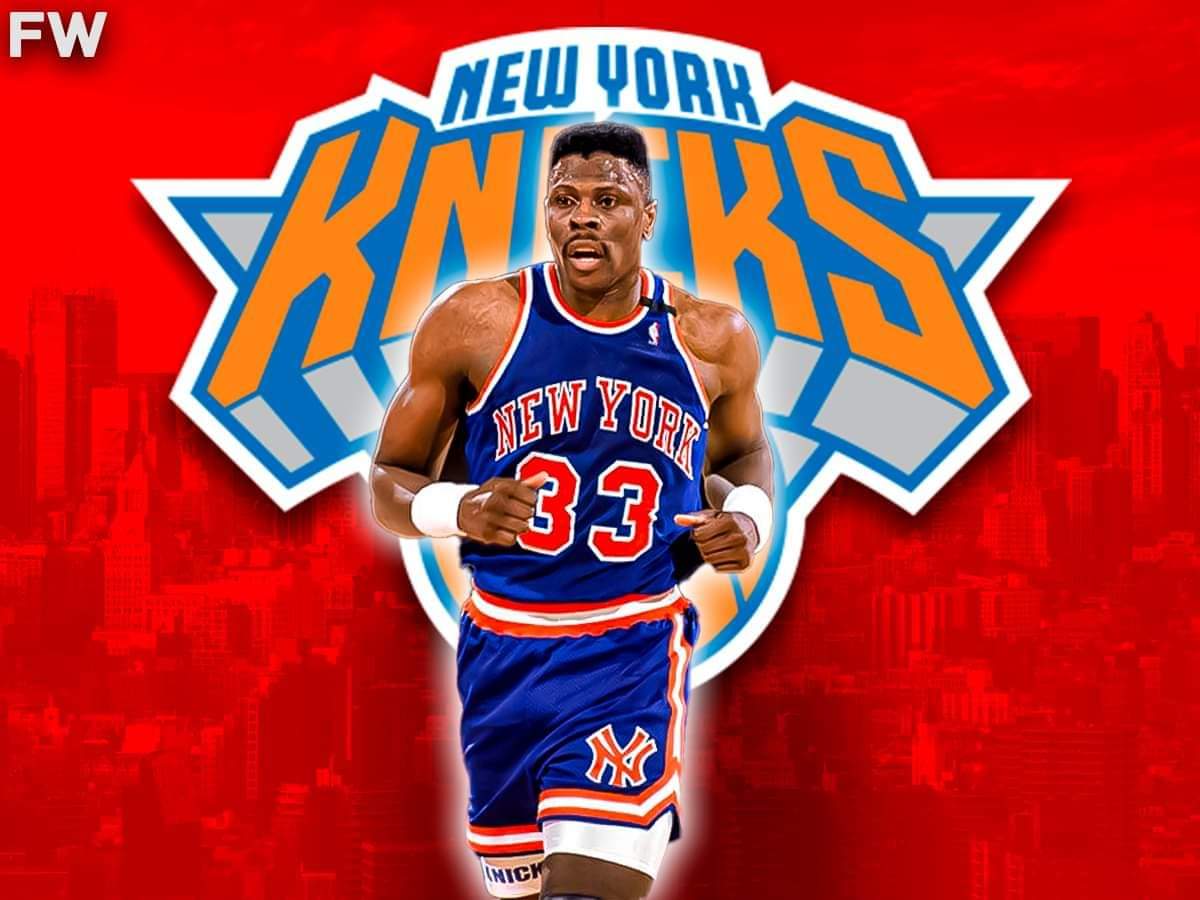
1979-80 to 1988-89 Achievements (with Knicks): 1x Rookie Of The Year, 3x All-Star, 2x All-NBA Team Selection, 2x All-Defensive Team Selection
With all due respect to the great Bernard King, our choice for the best player from the New York Knicks in the 80s had to be Patrick Ewing. The big man from Georgetown University came in and immediately made the Knicks contenders once again after facing uncertainty for too long by New York standards. As he developed and as the decade progressed, Ewing became one of the best two-way bigs in basketball and helped the Knicks morph into a perennial contender once again.
Ewing began his career in the 1985-86 season and was immediately honored for his effort. Ewing won Rookie of the Year in 1986, averaging 20.0 PPG, 9.0 RPG, and 2.1 BPG for a 23-win Knicks team. He would be an All-star 3 out of the 4 years that he played in the 80s and was named to 2 All-NBA and All-Defensive Teams. In the 80s, Ewing averaged 21.2 PPG, 8.8 RPG, 1.3 SPG, and 2.8 BPG. More importantly, he gave a fanbase hope that had begun to lose it before his arrival.
Oklahoma City Thunder – Gus Williams
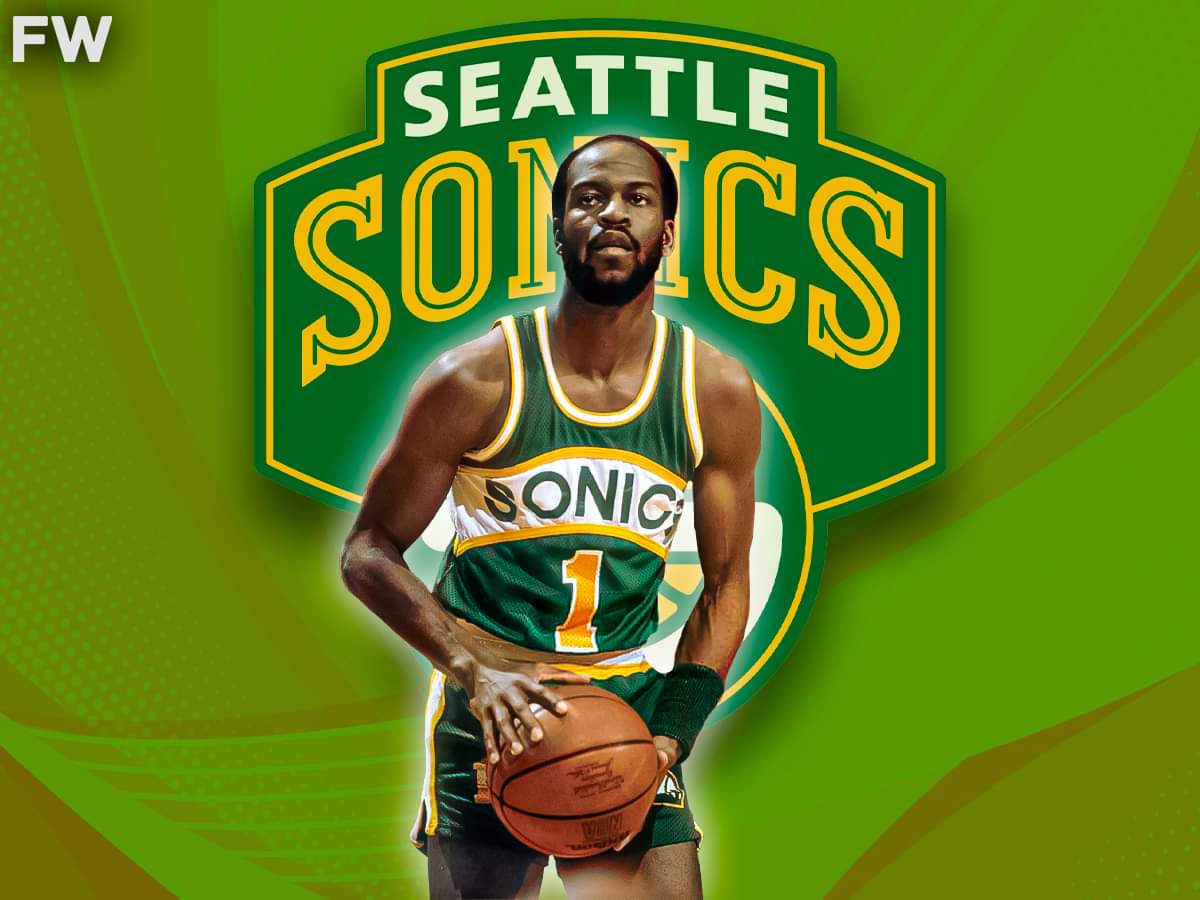
1979-80 to 1988-89 Achievements (with SuperSonics): 1x Comeback Player Of The Year, 2x All-Star, 2x All-NBA Team Selection
Gus Williams and Dennis Johnson were the electric backcourt that helped deliver an NBA championship to Seattle in 1979. Johnson could have been the pick for the 80s, except he was gone from Seattle by the time 1981 came around, and Williams was around until 1985. Williams was an electric scorer and defender whose impact on the game went way further than just the stat sheet. With his high basketball IQ and instincts, Williams became one of the best guards in basketball during the early 1980s.
After the championship in 1979, Williams followed it up in 1980 by averaging 22.1 PPG and leading the Sonics to 56 wins. He then missed the entire 1981 season but came back in 1982 better than ever. He averaged a career-high 23.4 PPG on 48.6% shooting, and again the Sonics won 52 games. Williams would earn one more All-Star appearance in 1983 and had another solid season in 1984 before moving on to the Washington Bullets.
Philadelphia 76ers – Moses Malone
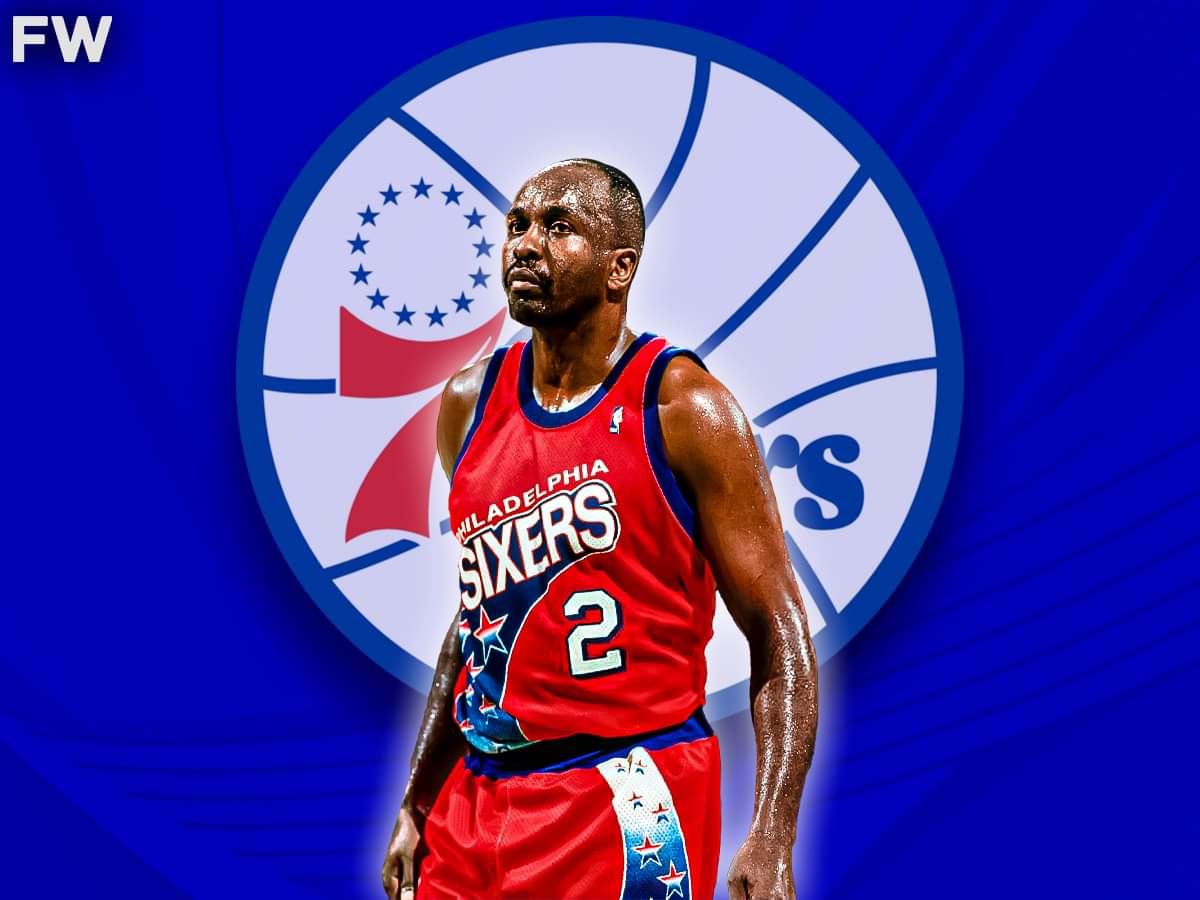
1979-80 to 1988-89 Achievements (with 76ers): 1x NBA Champion, 1x Finals MVP, 1x MVP, 4x All-Star, 3x All-NBA Team Selection, 1x All-Defensive Team Selection
Once again, Moses Malone makes our list in controversial fashion over a franchise legend. Julius Erving could easily be the pick here to represent the 76ers, but Moses Malone was on top for the 4 seasons he played in Philadelphia. Moses was the same old dominant rebounder and scorer who was the No. 1 option on offense and one of their leading defenders as well. Malone’s arrival in 1983 put the team over the top as championship contenders, and he delivered in his first season as a Sixer.
Moses Malone arrived in 1983 and had one of the best first seasons in Sixers’ history. He won the MVP award by averaging 24.5 PPG, 15.3 RPG, 1.1 SPG, and 2.0 BPG. He and Erving then led the Sixers to an NBA championship, where Malone was honored as the Finals MVP. Malone averaged 25.8 PPG, and 18.0 RPG in the 4-game sweep of the Lakers, and Malone cemented his place in Sixers history forever. Malone may not be the most famous or most beloved Sixer in franchise history, but he was certainly their best during the 1980s.
Phoenix Suns – Walter Davis
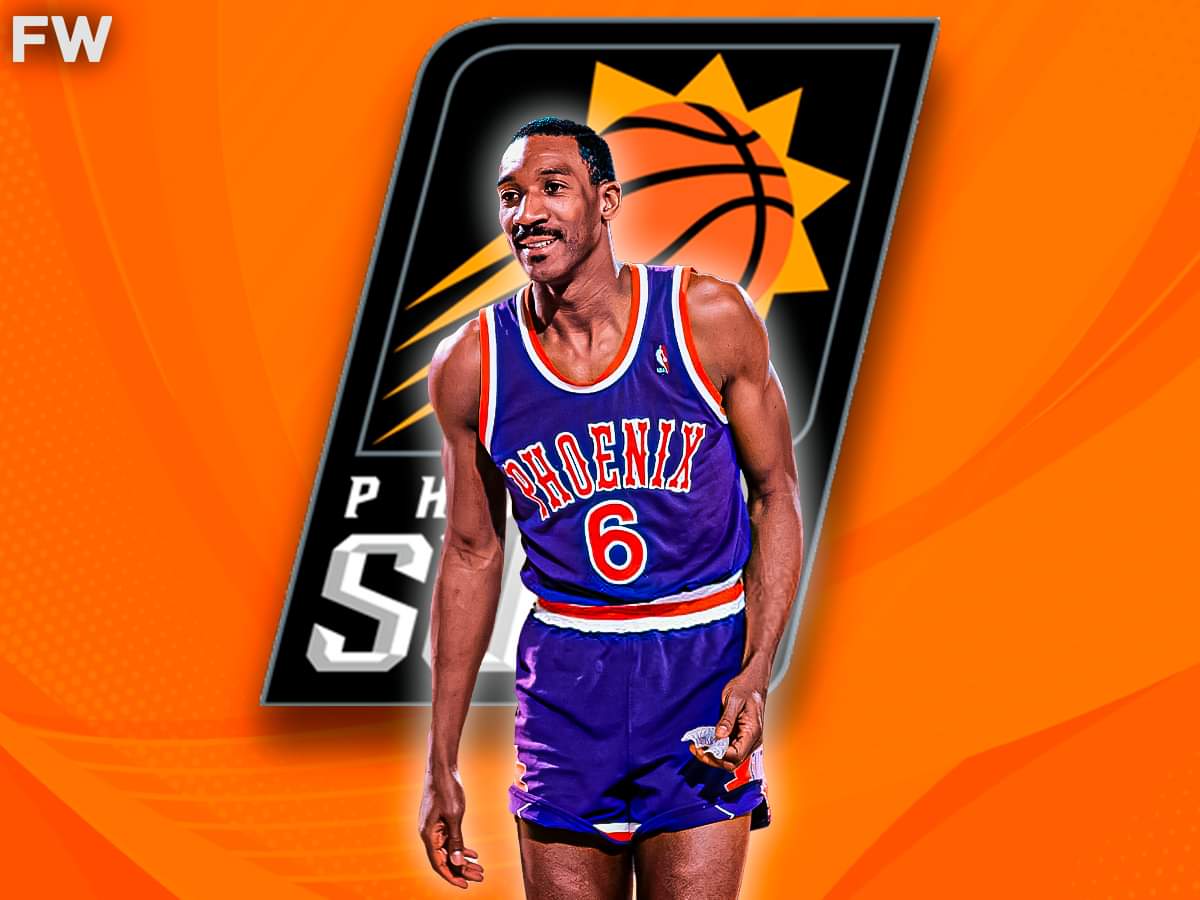
1979-80 to 1988-89 Achievements (with Suns): 4x All-Star
Walter Davis is one of the most forgotten and downright disrespected players in NBA history. Rarely are his accomplishments and skills ever mentioned, even by the most loyal of Suns fans whose fandom goes back generations. Davis was a speedy and smart 6’6’’ guard/forward who controlled the game the way he wanted to. Despite doing most of his scoring from the perimeter, Davis still shot 51.1% from the field for his career and established himself as a Suns legend.
Davis was the Rookie of the Year in 1978 and one of the faces of the franchise heading into the 80s. He was named an All-Star in both 1980 and 1981, averaging 19.7 PPG, 4.2 APG, and 1.4 SPG over those 2 seasons. He would again be named an All-Star in 1984 and 1987 when he became a consistent 20.0 PPG player for the Suns. In his 11 seasons with Phoenix, Davis eclipsed 20.0 PPG, scoring 6 times, and is still the franchise’s all-time leading scorer to this day with 15,666 points.
Portland Trail Blazers – Clyde Drexler
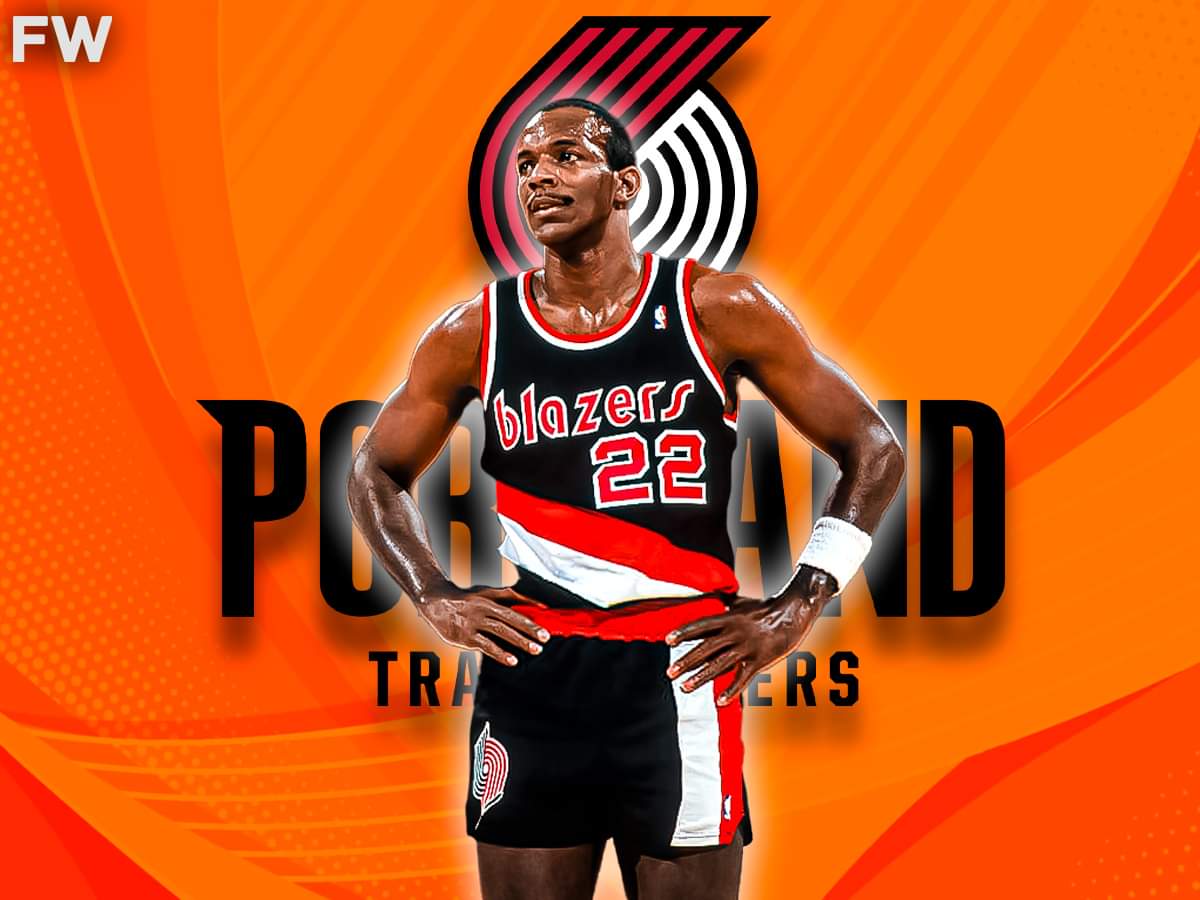
1979-80 to 1988-89 Achievements (with Trail Blazers): 3x All-Star, 1x All-NBA Team Selection
Clyde Drexler is mostly known for being the 2nd best shooting guard of his generation and leading the Trail Blazers to 2 different NBA Finals series in the 1990s. Drexler was not even a starter for Portland during his rookie campaign, but by the time they made him one, he was an All-Star and superstar in the making. Drexler used to fly down the court and soar through the air on his way to the basket as one of the more lethal transition threats of his time. They don’t call him “Clyde The Glide” for nothing.
Once Drexler was made an All-Star, he evolved into a consistent All-Star player who averaged 27.0 PPF or better at the end of the 80s. He finished 5th in the 1988 MVP voting when he averaged 27.0 PPG, 6.6 RPG, 5.8 APG, and 2.5 SPG. Drexler was giving just a glimpse of what was to come in the 90s as he led the Trail Blazers to 2 NBA Finals and helped the Rockets win a championship in 1995.
Sacramento Kings – Otis Birdsong
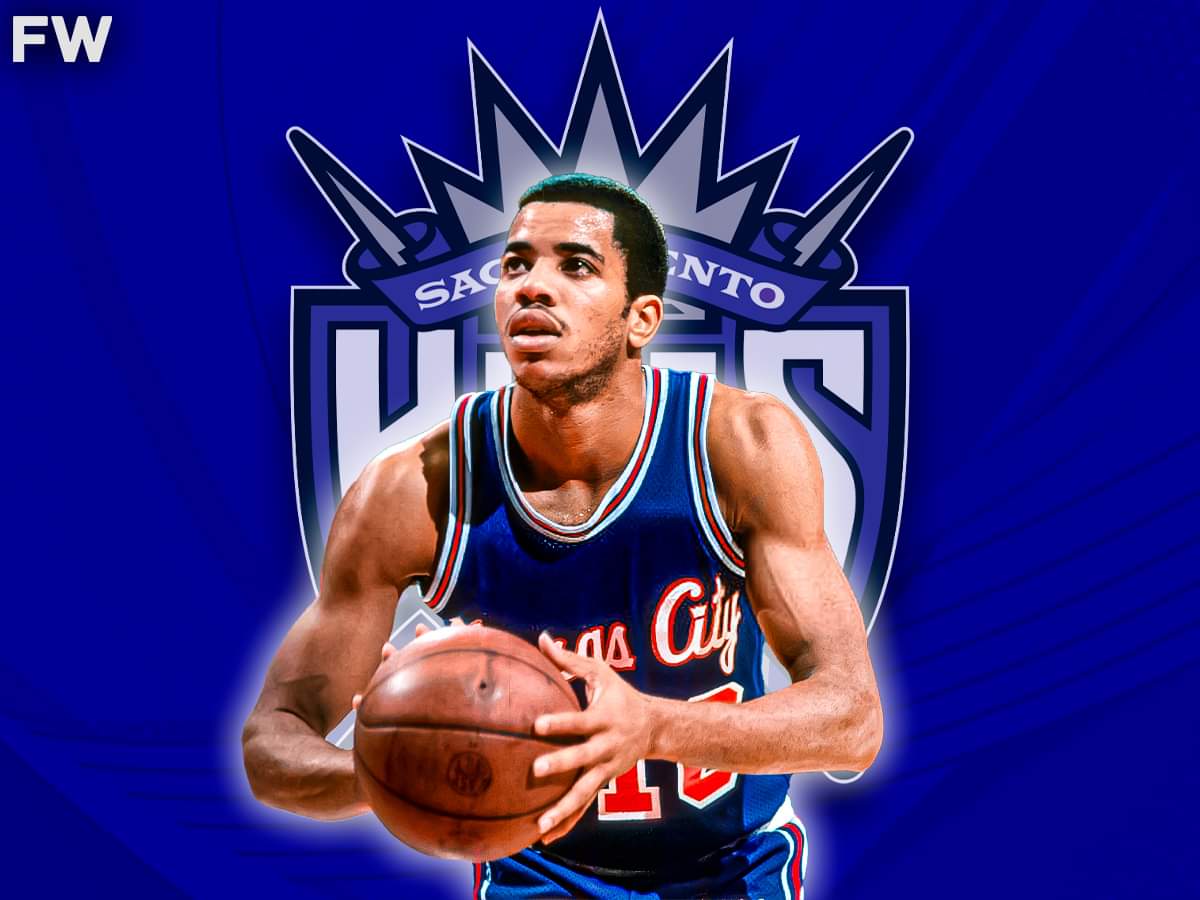
1979-80 to 1988-89 Achievements (with Kings): 2x All-Star, 1x All-NBA Team Selection
The issues surrounding the Sacramento Kings and their lack of winning since the beginning of time are well documented. Things were no different for them in the 1980s as the team made another move from Kansas City to Sacramento. During the 1980s, the Kings only had 3 All-Star selections in the entire decade. Two of those selections belong to Otis Birdsong.
Birdsong was drafted to the Kings in 1977 when the team was still in Kansas City. He would make 3 straight All-Star appearances for them from 1979 through 1981. In 1980, Birdsong was selected as an All-Star and averaged 22.7 PPG and 1.7 SPG on a team that won 47 games. He was selected as an All-Star once again in 1981 when he averaged 24.6 PPG and 1.3 SPG on a team that won 40 games. Birdsong led the Kings to 3 playoff appearances in his first 4 seasons with the team before being dealt to New Jersey for Cliff Robinson.
San Antonio Spurs – George Gervin
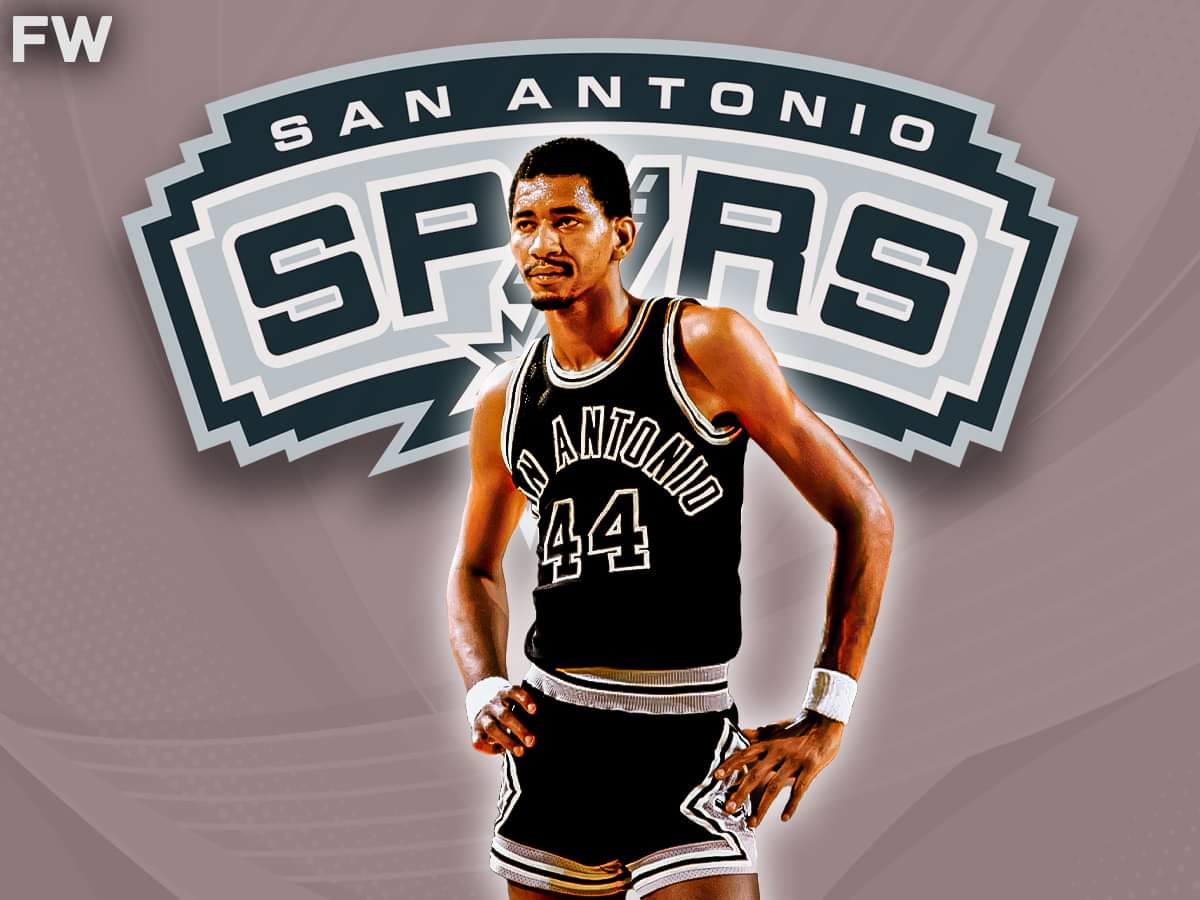
1979-80 to 1988-89 Achievements (with Spurs): 6x All-Star, 1x All-Star Game MVP, 4x All-NBA Team Selection
If Michael Jordan didn’t exist, George Gervin and Kobe Bryant would fight it out for the best-scoring shooting guard of all-time title. Gervin possessed an elegance on the floor rivaled by few during the 1980s, and on the court, the man looked like he was floating. Gervin was just a superior offensive weapon to everybody else on the floor. He was super fast and agile and moved without the ball to perfection. He could stop on a dime from a full-speed spring to pull up and knock down his jumper, or he would glide through the paint for his signature finger-roll finish.
Gervin ended the 1980 season as the decade’s first scoring title winner. He averaged 33.1 PPG that season in what was his 3rd career scoring title. He would win it once again in 1982 when he averaged 32.3 PPG. Gervin was an All-Star every season on the Spurs, which includes the 6 seasons he was with them for the 80s. During this time, Gervin was one of the best scorers in basketball. Over those 6 seasons, Gervin averaged 27.7 PPG on 50.1% shooting.
Utah Jazz – Adrian Dantley
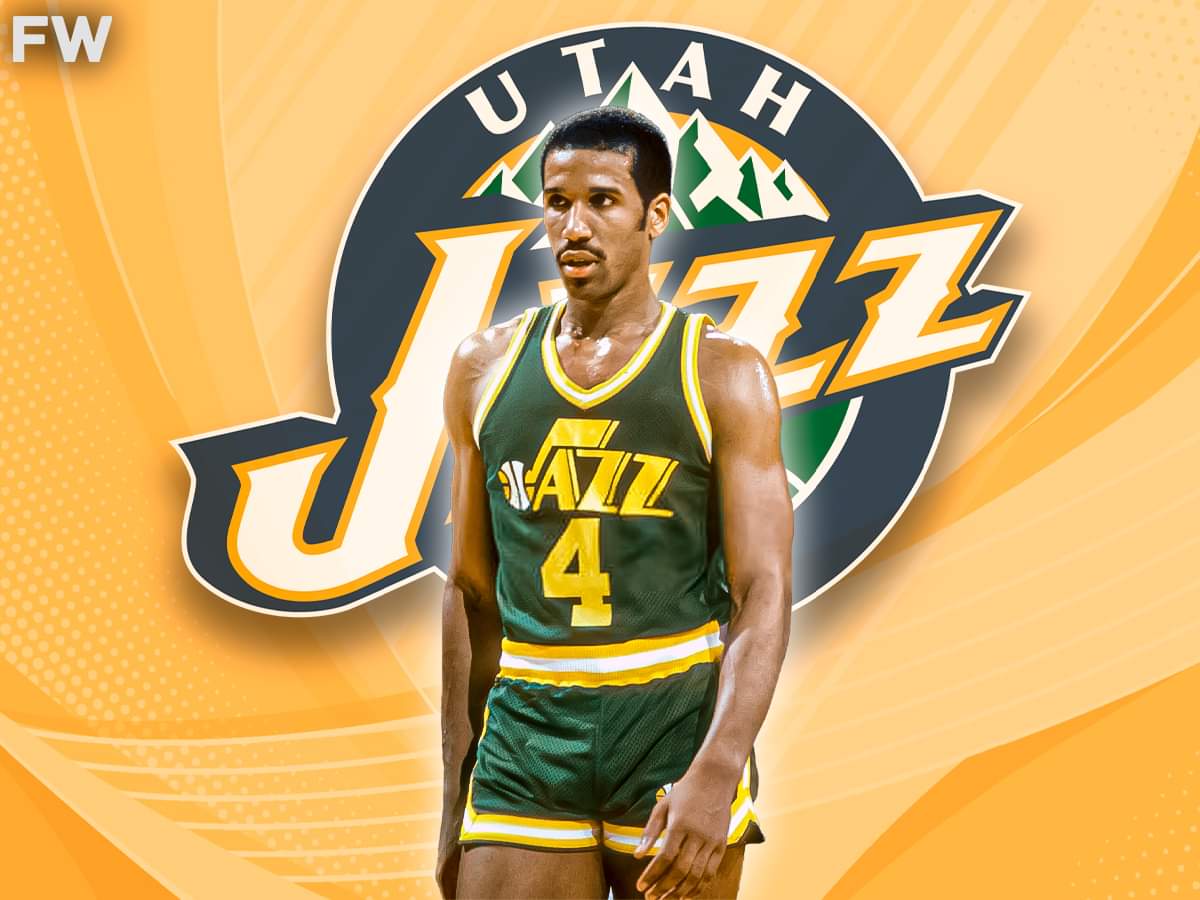
1979-80 to 1988-89 Achievements (with Jazz): 1x Comeback Player Of The Year, 5x All-Star, 2x All-NBA Team Selection
The 90s had Malone and Stockton for the Utah Jazz, and the two stars did happen to debut in the 80s, but neither of them is the choice here over Adrian Dantley. The original AD came over to Utah in the 1979-80 season after an uneventful first 3 seasons of play. Dantley immediately became an All-Star and Utah’s best player. Dantley was one of the best pure scorers in basketball, as he would take home 2 scoring titles for Utah in the 80s and multiple 30.0 PPG seasons.
In Dantley’s first 3 seasons in Utah, he was selected as an All-Star. Over those 3 seasons, he averaged 29.7 PPG and 6.7 RPG on 56.8% shooting. Dantley left defenders confused and in the dust as he won the scoring title in 1981 with 30.7 PPG and again in 1984 with 30.4 PPG. For 7 seasons from 1980 through 1986, Dantley was one of the best small forwards in basketball with 29.6 PPG while leading the Jazz to 2 second-round appearances in 1984 and 1985. Stockton and Malone were great some seasons later for Utah, but Dantley is the obvious choice for Utah in the 80s.
Washington Wizards – Jeff Malone
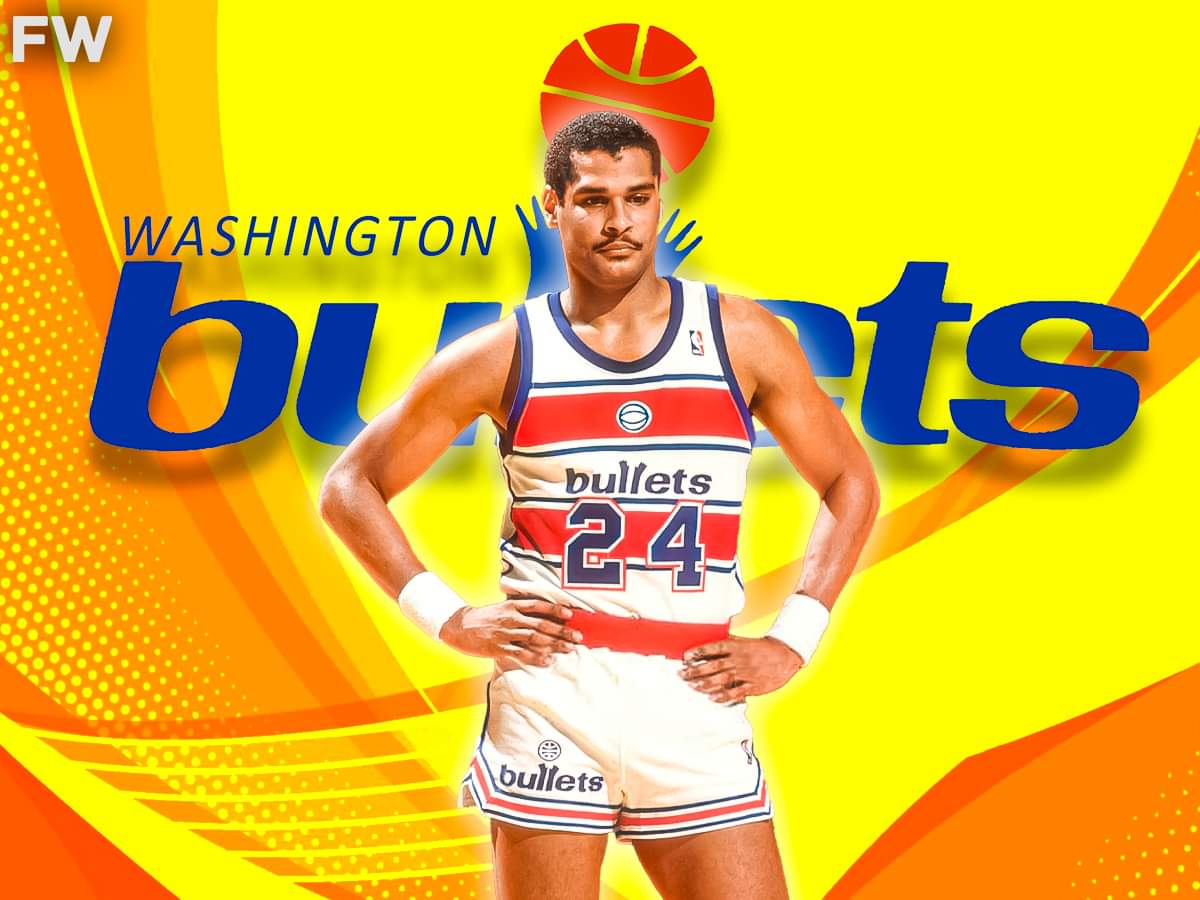
1979-80 to 1988-89 Achievements (with Bullets): 2x All-Star
Jeff Malone is another one of those stars from the 80s that was overshadowed by the star power at the top of the league. The Washington Bullets have a storied history from the championship teams of the 70s to the Gilbert Arenas years of the 2000s and beyond. Malone was the guy for the Bullets in the 80s who led the team in scoring for the decade and to the playoffs 5 straight seasons from 1984 through 1988.
Malone was taken with the 10th overall pick in the 1983 NBA Draft and had an All-Rookie First Team season with 12.1 PPG. Just two seasons later, he would be an All-Star for the Bullets, leading them to the playoffs with 22.4 PPG on 48.3% shooting. Malone would add another All-Star appearance the following season in 1987 with 22.0 PPG on 45.7% shooting, with the Bullets winning 42 games. Malone doesn’t get his due for the work he put in during the 1980s, but here today, maybe it can begin.
If you are interested in more NBA news, follow us on Google News for the latest updates.

